Welcome back to This Week in Apps, the weekly TechCrunch series that recaps the latest in mobile OS news, mobile applications and the overall app economy.
The app economy in 2023 hit a few snags, as consumer spending last year dropped for the first time by 2% to $167 billion, according to data.ai’s “State of Mobile” report. However, downloads are continuing to grow, up 11% year-over-year in 2022 to reach 255 billion. Consumers are also spending more time in mobile apps than ever before. On Android devices alone, hours spent in 2022 grew 9%, reaching 4.1 trillion.
This Week in Apps offers a way to keep up with this fast-moving industry in one place with the latest from the world of apps, including news, updates, startup fundings, mergers and acquisitions, and much more.
Do you want This Week in Apps in your inbox every Saturday? Sign up here: techcrunch.com/newsletters
Top Stories
Social apps & “pseudo” teen protections
Amid a lack of U.S. regulation over how social media companies should be protecting their teen and minor users, big tech companies are self-policing, hoping to ward off any coming laws that could impact their businesses. But the companies’ so-called teen safety features and protections now being rolled out are doing little to actually limit the negative impacts of teens’ social media use. At best, they present small roadblocks or annoyances that any teen user could easily bypass. At worst, as in the case of Snapchat’s new Streaks pausing feature, they actually force users to pay for the benefit of a less addictive app and better mental health.
Let’s start with Instagram. The company this week was touting its expanded tests of an age verification feature that asks users to verify their age if they attempt to change their age to an adult (18 or older) in the app. The company offers one of three methods to confirm the user’s age: they can upload a government ID, take a video selfie, or get others to vouch for their age. The ID upload is obviously the most accurate method here, as video selfies can be hit or miss. Still, these first two options may feel a bit more invasive in terms of privacy. Plus, many in the under-18 crowd may not yet have a government ID if they haven’t gotten their driver’s license.
That’s why Instagram offers the third option of “social vouching.”
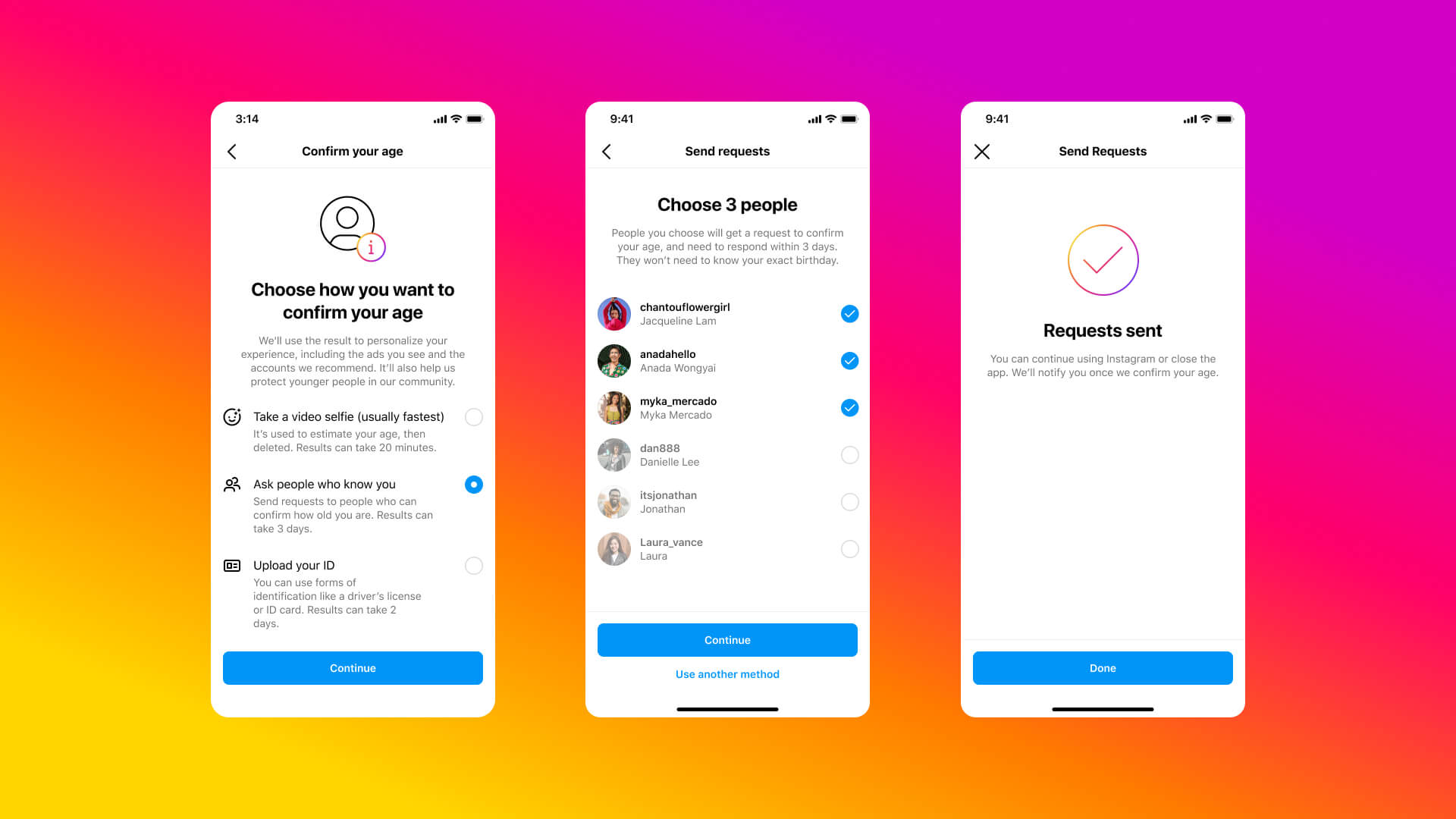
Image Credits: Instagram
But the way it’s implemented puts the control largely in the teen’s hands. A parent or guardian does not have to be asked to verify the teen’s age. Instead, the teen is allowed to hand-select three users among their mutual followers who will vouch that the teen is the age they say they are. Those vouching for the teen will receive a request, which they have to respond to within 3 days. This request presents several options for them to choose from such as “under 13 years old,” “13-17 years old,” “18-20 years old,” “21 years or older” or “I’m not sure.”
Instagram claims these users must also be at least 18 (assuming their age is real in the first place) and they must meet “other safeguards” but nothing about this option is documented in the site’s Help pages.
In practice, it would be exceedingly simple for a teen to simply ask their three friends to click the “18” option if they were trying to work around the system. As a result, this is not any sort of real preventative measure, it’s simply a roadblock a teen could easily avoid. (And let’s not forget that once the teen is “officially” 18, Instagram can use their data for ad targeting in more expansive and revenue-boosting ways!)
Next, there’s TikTok, which made headlines this week for its new 60-minute limit for teens, if it’s even fair to call it that. While the under-13 users will be blocked from continuing to watch without a parent or guardian’s permission, older teens can choose for themselves.
In the case of the former, the parent would need to enter a passcode to enable 30 more minutes of viewing for their under-13 child. However, all other teens under 18 will simply be prompted to enter a passcode to keep watching TikTok. Even the company acknowledges this isn’t really a limit on TikTok viewing, noting the passcode entry screen is there to require the teens “to make an active decision to extend that time.” It’s also just another roadblock and one designed to be easily bypassed.
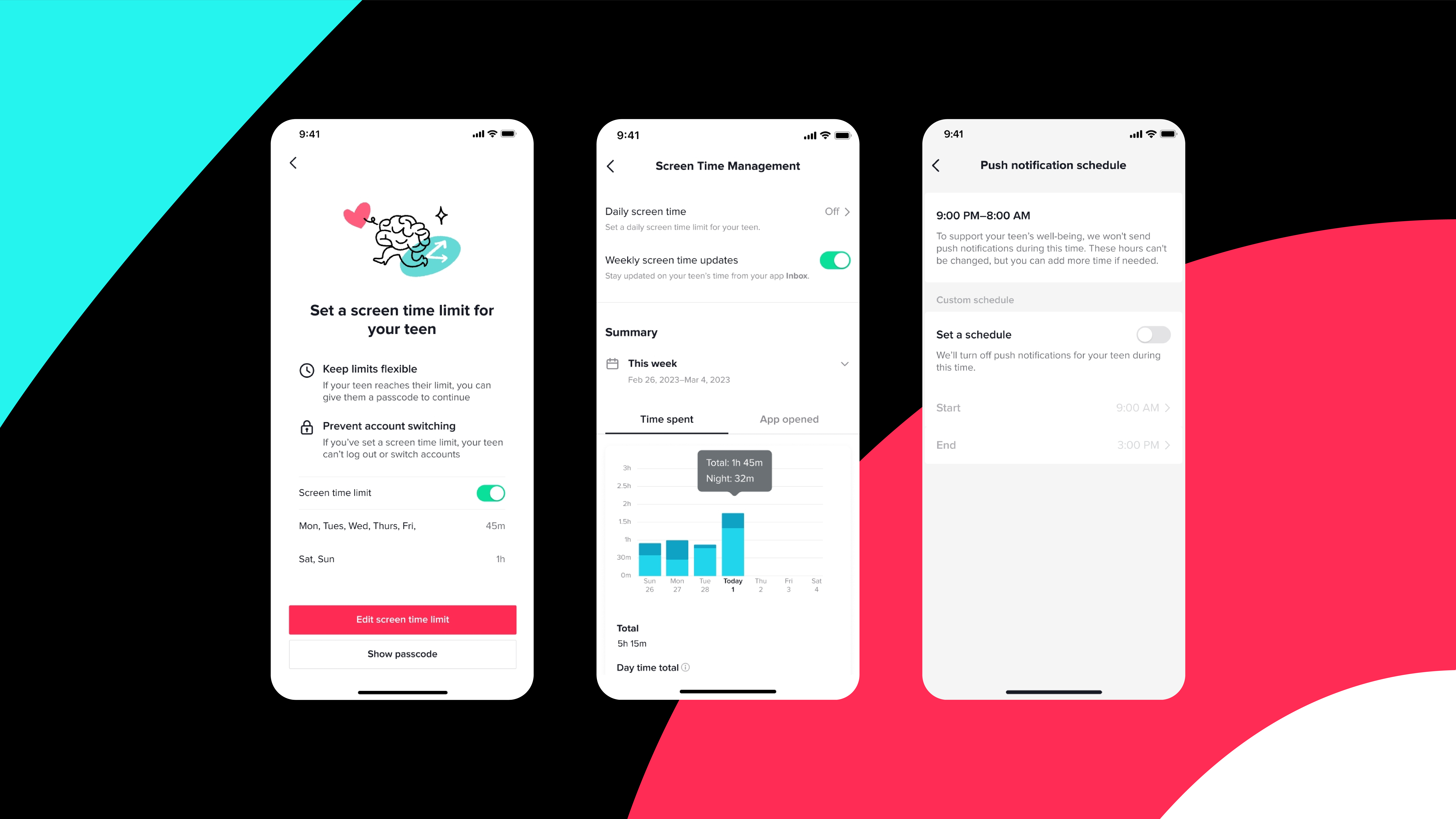
Image Credits: TikTok
But while Instagram and TikTok are at least gesturing toward teen safety and better mental health, Snap has decided to outright charge for it.
As any teen knows, one of the company’s most addictive features is the app’s “Snap Streaks,” which tracks how many days in a row two Snapchat users have sent Snaps back and forth to one another. Teens consider this measurement to be an indication of the strength of their friendship, but in reality, the Streaks have little point beyond encouraging repeat app opens and Snapchat addiction. The problem is so bad among teens that it’s been the focus of government intervention and proposed legislation at various times.
This week, Snap said it would test — not launch, mind you, but test — a new feature that would allow users to pay for Streak Restores.
This option would let them reignite a Streak in the event they accidentally let it drop. The option could potentially fend off customer service requests from teens who are so addicted to streaks that they email the company to beg for them back. In addition, Snapchat+ subscriptions will soon gain a feature that would allow users to freeze their streaks any time they needed a break, the company said.
This is an incredible thumbing of its nose by Snap at all the hubbub around teen safety and mental health protections. Not only is it doing nothing to address the root cause of the problem — that it gamified friendships among a psychologically vulnerable demographic — it’s asking users to pay for the privilege of unwinding from their addiction. The fact that the launch is being widely celebrated is only further proof of how desperate Snap’s users have become to have any options to limit their in-app screen time. It’s like charging opioid addicts for their methadone. Truly mindblowing.
Jack Dorsey-backed Bluesky hits the App Store and other Fediverse news
Bluesky, the Twitter alternative backed by Twitter co-founder and CEO Jack Dorsey, hit the App Store this week and more testers are gaining access. Though the app is still only available as an invite-only beta, its App Store arrival signals that a public launch could be nearing.
We hadn’t heard much from Bluesky since October 2022, when the team behind the project shared an update on the Bluesky blog, detailing the status of the social protocol that powers its new Twitter-like app, also called Bluesky. Last year, Bluesky said it had received $13 million to ensure it had the freedom and independence to get started on R&D and noted Jack Dorsey was on its board. (Because apparently, Twitter’s own board is asleep at the wheel!)
AT (originally called ADX, or “Authenticated Transfer Protocol,”) is Bluesky’s main effort while the Bluesky mobile app serves to showcase the protocol in action. Similar to the ActivityPub protocol that powers Mastodon, AT offers the means of creating a federated and decentralized social network.
TechCrunch was able to go hands-on with the Bluesky app this week, which you can read more about here, but found it to be a stripped-down Twitter clone for the most part. Its uniqueness is more about the underlying technology rather than its user interface, it seems.
Bluesky has faced some criticism, notably from Mastodon and other developers, who pointed out that ActivityPub — a recommended W3C standard — already powers a large and growing “Fediverse” of interconnected servers. Already, other companies have committed to or have at least discussed plans to adopt ActivityPub, including Flipboard, which announced its Fediverse plans this week, as well as Medium, Tumblr and possibly Flickr.
If there is any Fediverse momentum, it’s from ActivityPub for the time being.
We also checked in with Tumblr to find out where the company was with its own Fediverse ambitions since we hadn’t heard much about it plans lately. Automattic CEO Matt Mullenweg told us the company is actually testing all the protocols, including ActivityPub, Bluesky and Nostr.
“Tumblr is quite large, and we don’t want to break anything in the Fediverse by turning things on willy-nilly, so we’re digging into the protocols,” he said. There’s no ETA yet on when the company might make a decision, however.
Tweetbot & Twitterific ask customers to decline refunds in rare App Store exception
Twitter last month officially banned third-party clients, putting a sudden end to popular apps, including Tweetbot, Twitterrific, and others. This week, in an unusual turn of events, two developers have updated their shuttered apps with new functionality: They’re asking their subscribers to decline to receive a refund by clicking a new “I don’t need a refund” button in their nonfunctional apps. And, in the case of Tapbots’ Tweetbot app, users can opt to transfer their subscription to the company’s newest app — its Mastodon client Ivory — instead. The options allow subscribers who are sympathetic to these indie developers’ plight to offer support by not asking for their money back.
It’s an unprecedented situation, to say the least, and one most subscription-based iOS apps wouldn’t ever have to face. In most other scenarios, a company’s decision to put an end to API access, as Twitter did, would have been telegraphed well in advance. This would allow the businesses dependent on the API functionality to communicate with their customers about the change and prepare to take the next steps. The third-party Twitter clients, however, had no warning. Their businesses were ruined overnight though they had done no wrong. What’s more, they would have to pay back users’ pro-rated subscriptions out of pocket.
That situation seems to have paved the way for an equally unusual exception to App Store rules, which typically wouldn’t allow developers to solicit customers to decline refunds for non-functional apps. Subscribers can choose to click a button in the app to allow the developers to keep their money — which, we’d advise, everyone to go do now.
Platforms

Image Credits: Google
- Google announced new Android features at Mobile World Congress this week, alongside updates for Chromebook and Wear OS. Among the changes, Google said Fast Pair will soon work with Chromebook to connect headphones already configured with an Android device; expanded noise cancellation for Google Meet on more Android devices; a Google Keep widget for Home screens; the ability to use a stylus or touch the screen to annotate PDFs in the Google Drive app for Android; and a way to increase the text size in Chrome up to 300% while preserving the layout. Wear OS will receive two new sound and display modes to improve watch accessibility.
- Google’s Pixel Watch gained a fall-detection feature that uses motion sensors and on-device machine learning to identify if a user has taken a hard fall. The watch can then connect the user with help, if need be. Apple has offered a similar feature since 2018’s launch of the Apple Watch Series 4.
- Google announced upcoming policy changes aimed at improving the quality of apps for Wear OS and how they appear in the Google Play Store. The changes speak to how the app should be designed and how features should appear, among other things. The requirements go into effect on August 31. Google also noted all Wear OS apps must target Android 11 (API level 30) by August 31 as well in order to remain discoverable by users with newer Android OS versions.
- Recommended Reading: TechCrunch’s Brian Heater sat down with Android exec Sameer Samat to talk ecosystems, regulation and competition in a wide-ranging interview. You can dig in here.
Apple
- Apple rolled out iOS 16.4 beta 2 for developers alongside the second developer betas for iPadOS 16.4, tvOS 16.4 and watchOS 9.4. The betas include more hints about Apple Music Classical, the rumored streaming service in development. The software also confirms the coming launch of Apple Pay in South Korea, which had already been given the green light.
- The App Store Connect tool was updated to now allow developers to use peer group benchmarks for metrics about their apps. This allows developers to compare their app’s performance with others like them without having to subscribe to a third-party measurement firm’s data.
App Updates
AI
- Snap introduced My AI, a new in-app chatbot that uses the latest version of OpenAI’s GPT technology. The feature, which is only offered to Snapchat’s paid subscribers (Snapchat+), can do things like suggest birthday gift ideas, help with trip planning, suggest recipes, and other less serious tasks. Users can also personalize the AI by giving it a name and customizing the wallpaper for their chat.
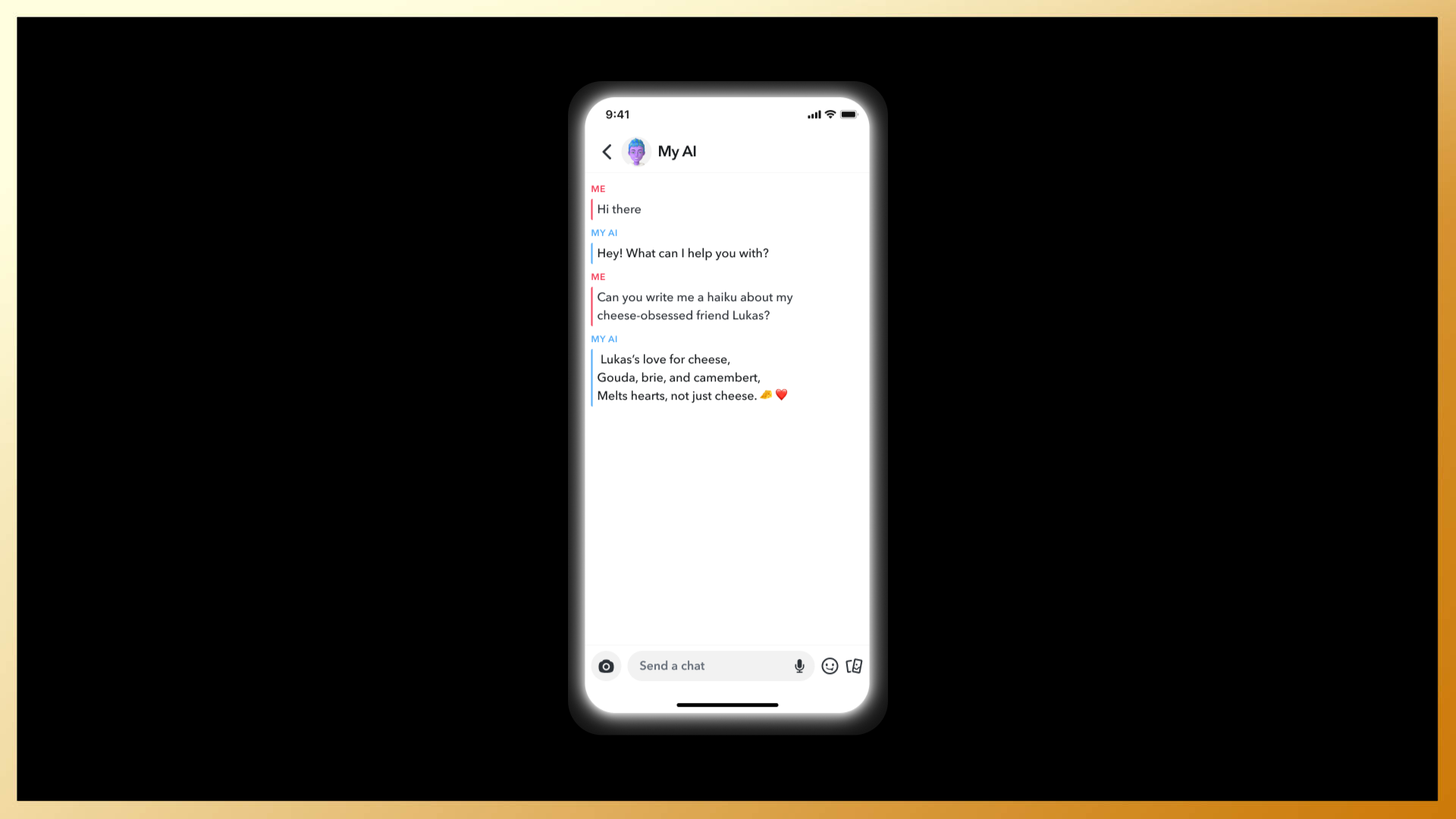
Image Credits: Snapchat
- Meta CEO Mark Zuckerberg also announced the company will build a new top-level product group focused on integrating generative AI into its services and developing “AI personas that can help people in a variety of ways.” In the near term, the company said it will begin testing text-based AI tools in WhatsApp and Messenger, likely similar to ChatGPT. It also said it will experiment with AI-aided filters and ad formats on Instagram as well as video and multi-modal experiences.
- Windows 11 added the new Bing to its taskbar after previously bringing it to its Edge desktop browser followed by the Edge, Bing and Skype mobile apps.
- Brave Search launched a new “Summarizer” feature, which is powered by different large langue models (LLMs), but not OpenAI’s GPT. the feature will become available within desktop and mobile web browsers but was not yet natively integrated into Brave’s native mobile browser app.
- TikTok’s newest viral beauty filter, “Bold Glamour,” appears to be AI, notes The Verge. But TikTok wouldn’t confirm. Unlike other filters, Bold Glamour completely alters’ users’ appearances — but in a way that makes the effect look less cartoonish and more subtle. Experts believe the filter is likely using ML, specifically Generative Adversarial Networks, or GANs. The impressive part is that TikTok has been able to bring this technique to mobile with minimal glitches, the report says.
Social
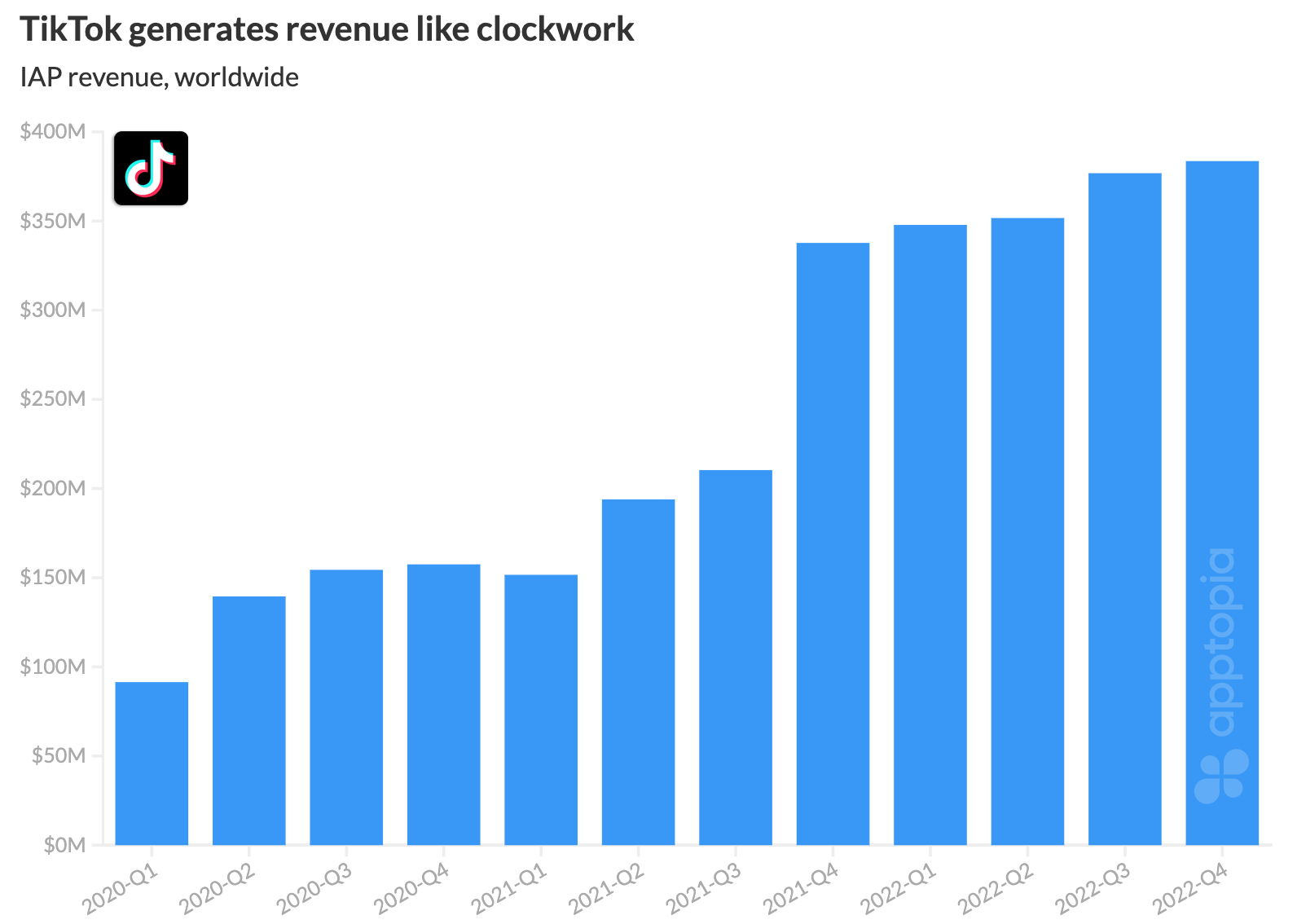
- Apptopia crunched the numbers on social apps’ in-app purchases. Companies are now looking to direct user payments, including subscriptions and other in-app purchases, as Apple’s ATT changes have cut into their ad revenues. Among the highlights, the report found that TikTok has earned $205 million more than Facebook, Twitter, Snap, and Instagram combined on in-app purchases in 2023 so far. The full group has also grown their collective quarterly IAP revenue 91% since the launch of ATT. Snapchat+ is also outperforming Facebook on daily IAP revenue by 20% on average.
- VSCO says it’s expanding its social features in Spaces, its collaborative galleries where photographers can upload images around a theme and chat. In mid-March, VSCO will make it possible for users to share text-based posts in Spaces and will allow users to message each other, regardless of follow status. It will also introduce new 9×16 auto-generated images, optimized for Instagram Stories and the like, among other improvements.
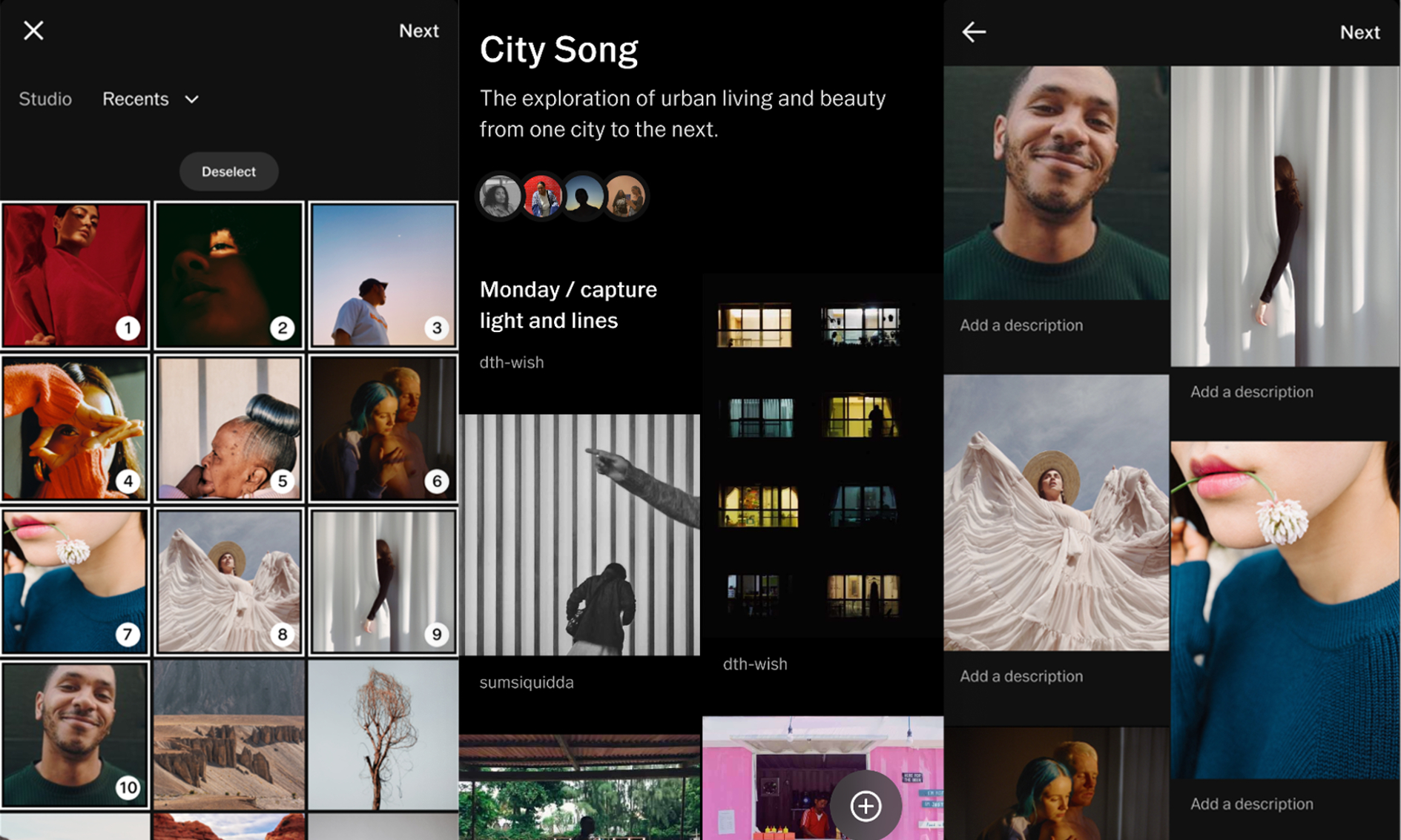
Image Credits: VSCO
- Reddit added new features including the ability to find comments within a post from the search bar, which will arrive on desktop, iOS and Android. It also noted other improvements, like its subreddit search algorithm that’s been enhanced to surface more relevant subreddits for most searches, updates to autocomplete, and easier ways to browse video results with up and down swipes in video search results.
- Twitter’s paid subscription Twitter Blue is now available to more than 20 new countries in Europe, including Netherlands, Poland, Ireland, Belgium, Sweden, Romania, Czech Republic, Finland, Denmark, Greece, Austria, Hungary, Bulgaria, Lithuania, Slovakia, Latvia, Slovenia, Estonia, Croatia, Luxembourg, Malta and Cyprus. The expansion makes the $8/mo plan available in a total of now 35 countries, including the U.S.
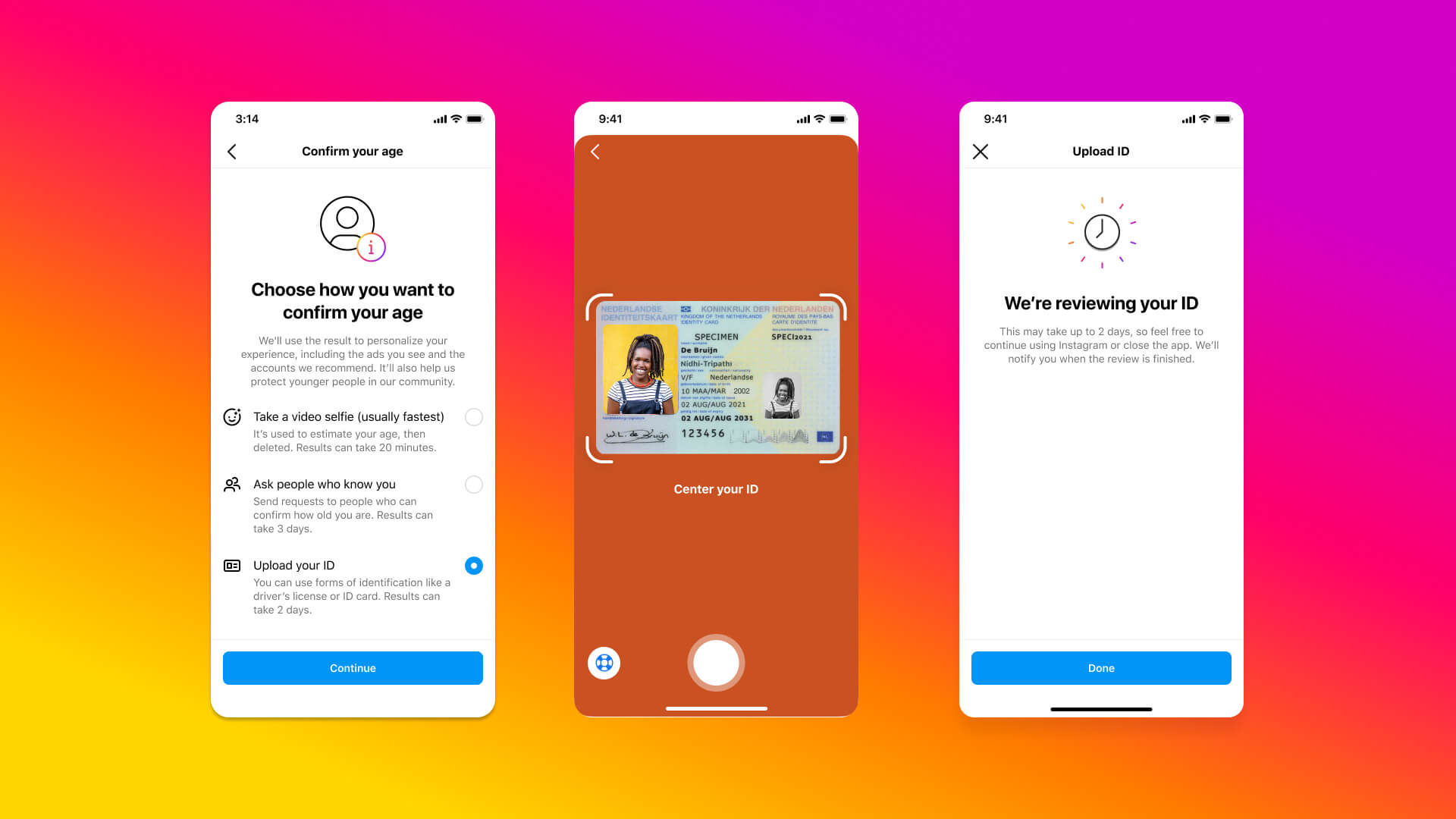
Image Credits: Instagram
- Instagram began testing its age verification tools in more countries, including Canada and Mexico. The test initially launched in the U.S., then later rolled out in Brazil and Japan in October. If a user attempted to change their age to 18 or up, the app would require them to verify using one of three methods: uploading an ID, recording a video selfie or asking mutual friends to verify their age.
- Pinterest is alpha testing a new video advertising product that allows brands to reach consumers from a more prominent position within the company’s mobile app. With the “Premiere Spotlight” ad advertisers will gain access to a premium placement for 24 hours on the Pinterest app’s search page, where they are able to feature an add with Pinterest’s max width video format.
- TikTok parent company ByteDance launched Lemon8 in the U.S. and U.K., an app that’s a lot like the Chinese social shopping app Xiaoghongshu (Little Red Book). Like TikTok, the app has a Following and For You feed, but is described more as a lifestyle community. The company has been paying creators in the U.K. to post on the app.
- Meta will now allow for longer Facebook Reels of up to 90 seconds, up from 60 seconds previously. It is also added more creative tools, including a new templates feature that lets users create Reels with trending templates, similar to ByteDance’s CapCut.
Streaming & Entertainment

Image Credits: TikTok
- Ahead of TikTok CEO Shou Zi Chew’s testimony before Congress planned for March, the company introduced more well-being features for teens, including screen time controls, new default settings and expanded Family Pairing controls. Notably, every account belonging to a user under the age of 18 will automatically be set to a 60-minute daily screen time limit, and teens will have to enter a code to continue scrolling. It’s also working on Family Pairing controls that would let parents filter videos by words and hashtags as well as customizable daily screen time controls.
- A TikTok test in Australia limited the amount of licensed music available to some users on the platform, in an experiment to determine the different ways people interact with the app, Billboard reported. The results could ultimately inform TikTok’s licensing strategy, but users issued numerous complaints over the accompanying “sound removed” messages during the tests.
- Spotify is killing its “heart” button for liking songs in favor of the plus button. The change will consolidate likes and adding content to playlists into a single button as one tap will like the track and a second tap will add the track to playlists.
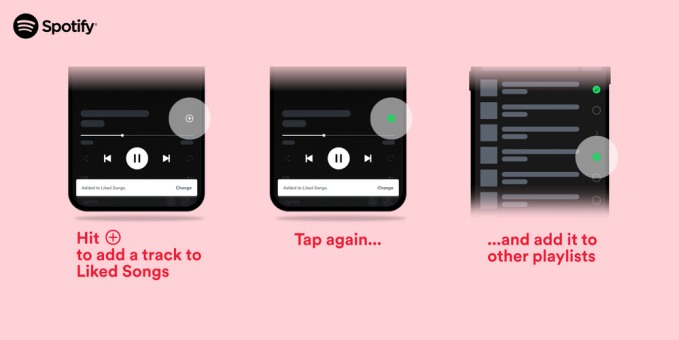
Image Credits: Spotify
- Pinterest’s collage maker app Shuffles expanded to nine more countries, including Germany, France, Austria, Switzerland, Denmark, Norway, Sweden, Finland and the Netherlands. The app lets users pull and edit images from Pinterest or their camera roll to make collages they can share with others in-app or post to social media.
- TikTok launched Sounds for Business, a collection of sounds that are designed as templates for easy use by marketers. The collection includes a mix of music, voice-over and other sound cues to help businesses create engaging content.
- Twitter outages have gotten worse as further layoffs of senior staff have left the company floundering. Most recently, a global outage this week lasted for over two hours, with the timeline failing to load on mobile and web. But users are now often experiencing lags and errors outside of full outages, as well.
- Amazon-owned Audible is launching its first-ever singing competition series, “Breakthrough,” as an exclusive podcast featuring artists Sara Bareilles and Kelly Rowland as judges. The series debuts on June 1.
- Netflix will live stream its first broadcast with Chris Rock’s latest standup, “Chris Rock: Selective Outrage.” The airing will take place on Saturday, March 4, at 10 PM Eastern.
- Movies Anywhere, a previously Disney-backed app that lets users access their digitally owned movie collection from across services, is shutting down two features, “Screen Pass” and “Watch Together.” The former allowed users to share their movies with friends while the latter was for co-viewing.
Gaming

Image Credits: The Pokémon Company
- During this week’s Pokémon Presents livestream, the company announced Pokémon Sleep will become available on iOS and Android this summer, offering users a way to track their sleep habits and analyze them. It also announced integrations between its Pokémon Scarlet & Violet games and the Niantic-produced mobile game Pokémon GO.
Dating
- Tinder kicked off a new brand campaign to appeal to Gen Z daters and their inclusive attitudes. It’s also pushing back again at Tinder’s hookup perception, noting that long-term relationships are members’ No. 1 goals — a change from an earlier campaign several years back that had embraced Tinder’s “casual” nature.
Messaging
- Microsoft launched Phone Link for iOS which lets iPhone users take calls and respond to iMessage texts from their PC.
- Telegram updated its Mac App Store app with a new Power Saving Mode that aims to help prevent the app from draining the computer’s battery. The feature will also automatically turn itself on based on the current battery charge.
Travel & Transportation

Image Credits: Cariad/VW Group
- The VW Group announced a new in-car app store will be launched by its software subsidiary Cariad. Starting with select Audi vehicles, the app store will bring dozens of apps to vehicles, including Spotify, Amazon Music, TikTok and gaming hubs Vector Unit and FRVR to cars starting this summer. It will later expand across Audi’s portfolio then to Porsche and Volkswagen.
- Waze killed off its iOS widget in its latest update due to low usage. The widget had been designed for the left-most homescreen and allowed users to jump into navigation. It’s unknown if Waze will bring back the widget as a Lock Screen option or full Home Screen widget instead.
- Apple Maps’ 3D “Look Around” feature has arrived in Finland, Norway and Sweden.
- Uber updated its app with updates for its courier feature Shop and Pay to address concerns with out of stock items, digital payments and order clarity before accepting a tip.
Fintech
- Indian fintech CRED announced plans to launch a buy now and pay later service and a tap-to-pay feature that will first roll out to NFC-enabled smartphones.
- Public made its Treasury Accounts available to all members. It said members can now take advantage of the current 5.1% yield of Treasury bills, which is higher than savings accounts, while also receiving the “flexibility and ease of access to cash” of a typical bank account.
- All-in-one fintech app Revolut reported its first full year of profit, noting it tripled its revenue between 2020 and 2021 and reached 16+ million users by the end of 2021.
- The crypto-focused Robinhood Wallet app was officially launched to iOS users globally. The app, which now supports both the Polygon and Ethereum networks, had a waitlist of over 1 million ahead of its launch.
- Wealthfront announced an expansion into stocks and fractional shares, allowing investors to now buy individual stocks and discover new investment opportunities.
- Gen Z neobank Step launched stock investing allowing users to now invest as well as earn, save, spend and build credit before they turn 18. The company also announced a milestone of 4 million accounts.
Government, Policy and Lawsuits
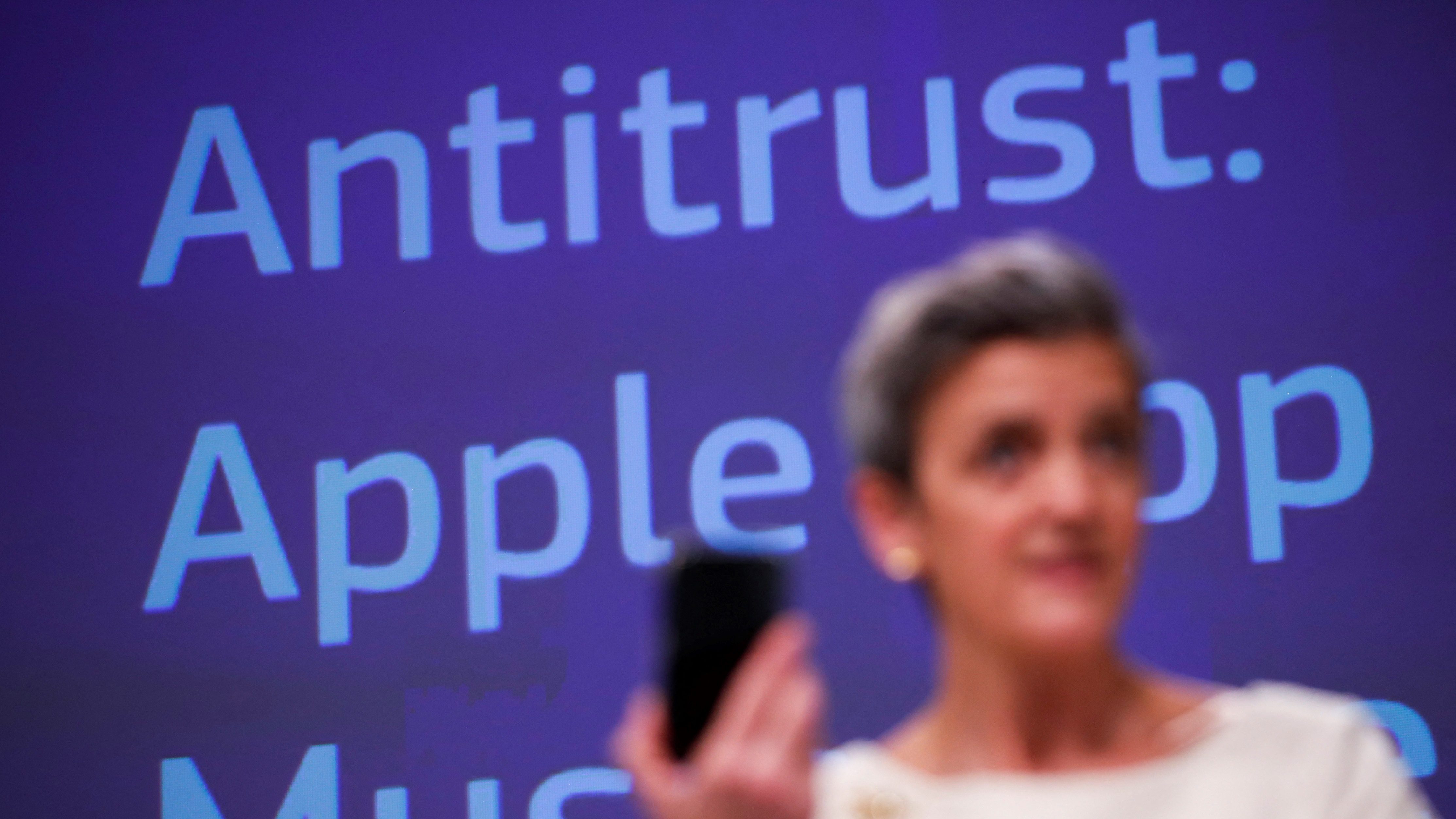
European Commissioner for Europe fit for the Digital Age, Margrethe Vestager, gestures as she speaks during an online news conference on Apple antitrust case at the EU headquarters in Brussels, on April 30, 2021. Image Credits: GETTY IMAGES / FRANCISCO SECO/POOL/AFP
- The EU confirmed changes to its antitrust case against Apple, dropping objections over in-app purchases on streaming music providers, and instead focusing on Apple’s policies that prevent apps from telling their users about other subscription options. This could still be good news for Spotify if a final ruling is issued, as it could force Apple to adjust its guidelines in addition to a fine. Spotify, however, is not happy with how long it’s taken to reach a decision on the matter.
- The Canadian government has followed the U.S.’s lead with an announcement that it plans to ban TikTok from federal mobile devices on February 28 over security concerns.
- The U.S. House Foreign Affairs Committee voted 24 to 16 to give President Joe Biden the power to ban TikTok and other apps. Democrats opposed the bill, which was said to be “dangerously overbroad.” The ACLU said it a TikTok ban would violate citizens’ free speech. The bill will have an uphill battle in the Senate, where Democrats still have a narrow majority. The bill follows moves by federal government and several state governments to ban TikTok from government devices.

Capitol building. Image Credits: Bryce Durbin/TechCrunch
- U.S. civil liberties and digital rights groups, including the ACLU, Access Now, and Fight for the Future, are speaking out against a potential TikTok ban saying that it would violate people’s First Amendment rights.
- An open letter penned by Senator Ed Markey (D-MA) called on new Twitter owner Elon Musk to bring the accessibility team back to the company, noting disabled users have “reported increased difficulty and frustration using Twitter” since the layoffs.
- BetterHelp owner Teladoc Health settled with the FTC for $7.8 million over data mishandling occurring from 2017-2020. The company also agreed to stop sharing data with Meta, Snap, and Pinterest for advertising purposes.
- In a new filing late last week, the U.S. Department of Justice alleged that Google “routinely destroyed” an entire category of written communications in its antitrust investigation against the company. The communications — chat messages between Google employees — were deleted over the course of several years, as Google allowed employees to set messages to auto-delete. A similar issue had been brought up by Epic Games in its ongoing trial involving the Fortnite maker accusing Google of anticompetitive conduct with its Play Store.
Funding and M&A
- CollX, a mobile app for trading card collectors, raised $5.5 million in a seed round led by Brand Foundry Ventures. Launched in January 2022, the app claims to have 600,000+ users who have scanned more than 100 million cards.
- Serena Williams’ Serena Ventures backed community finance company SoLo Funds, which now has 1 million+ registered users and over 1.3 million downloads, the company claims.
- Recipe app and website SideChef raised another $6 million in Series B funding, bringing its total raise to date to more than $16 million. Investors include LG, Ideate Ventures, AB Electrolux, Peacock Capital Group, and others. The app is free to download with a $4.99/mo premium subscription available and offers over 20K recipes.
- Chef-prepared meals marketplace Shef, available on web and mobile, raised $73.5 million in Series B funding back in June 2022 (newly announced), including $7 million in debt, led by CRV with participation from a16z and Amex Ventures. The company helps home cooks become small business owners and is now available nationwide.
- Chinese fast fashion giant Shein had talked with Amazon and Google over a potential investment when negotiating for cloud contracts, but neither firm was interested.
Downloads
Mammoth

Image Credits: Mammoth
A new Mastodon app called Mammoth gained 10,000 downloads in the first few days of its availability on the App Store. The app was built by a team that includes the developer of the Aviary app for Twitter, which was among those unceremoniously killed by Twitter earlier this year after new owner Elon Musk decided the wider app ecosystem no longer had a need for third-party Twitter clients. The app offers a range of features for using Mastodon from the expected — like being able to browse timelines and post and turn on a dark mode — to the less common, like picture-in-picture for pinning posts to your screen, tools for viewing media in AR, tools for sentiment analysis and more. But key to the experience is how Mammoth intends to make it easier for newcomers to join the Fediverse with simplified onboarding and a suggested users list.
The app is also backed by Mozilla, which led the company’s pre-seed round. The company behind Mammoth had acquired the app from developer Shihab Mehboob (Aviary 2, Vinyls) and is now led by Bart Decrem, previously of Mozilla, Disney, and other entrepreneurial projects, like KyrptoSign and years back, the Flock browser. Other investors include Long Journey Ventures and Salesforce’s Marc Benioff.
This Week in Apps: Jack Dorsey-backed Bluesky, social apps’ teen protections, Twitter clients get help by Sarah Perez originally published on TechCrunch

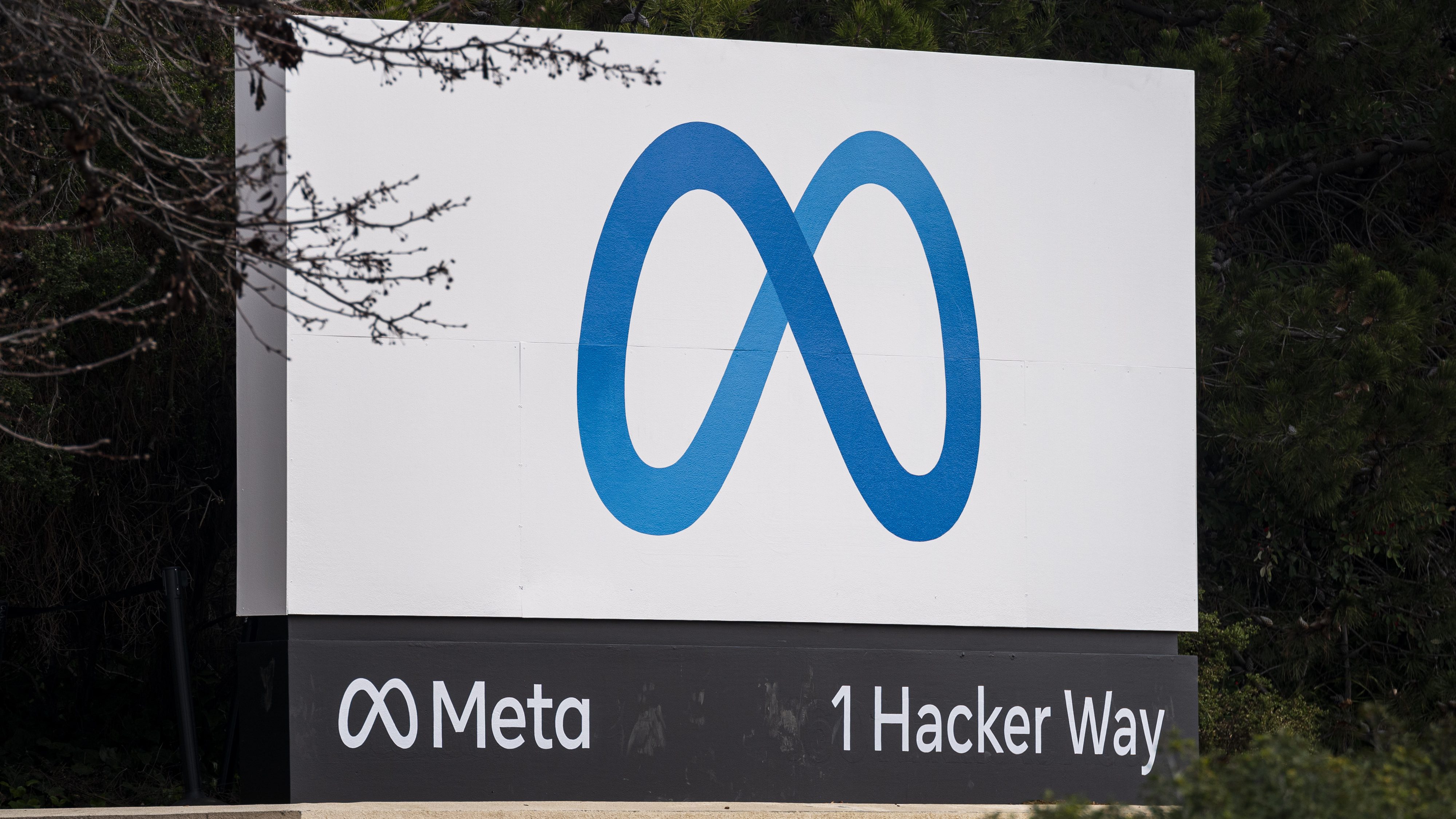

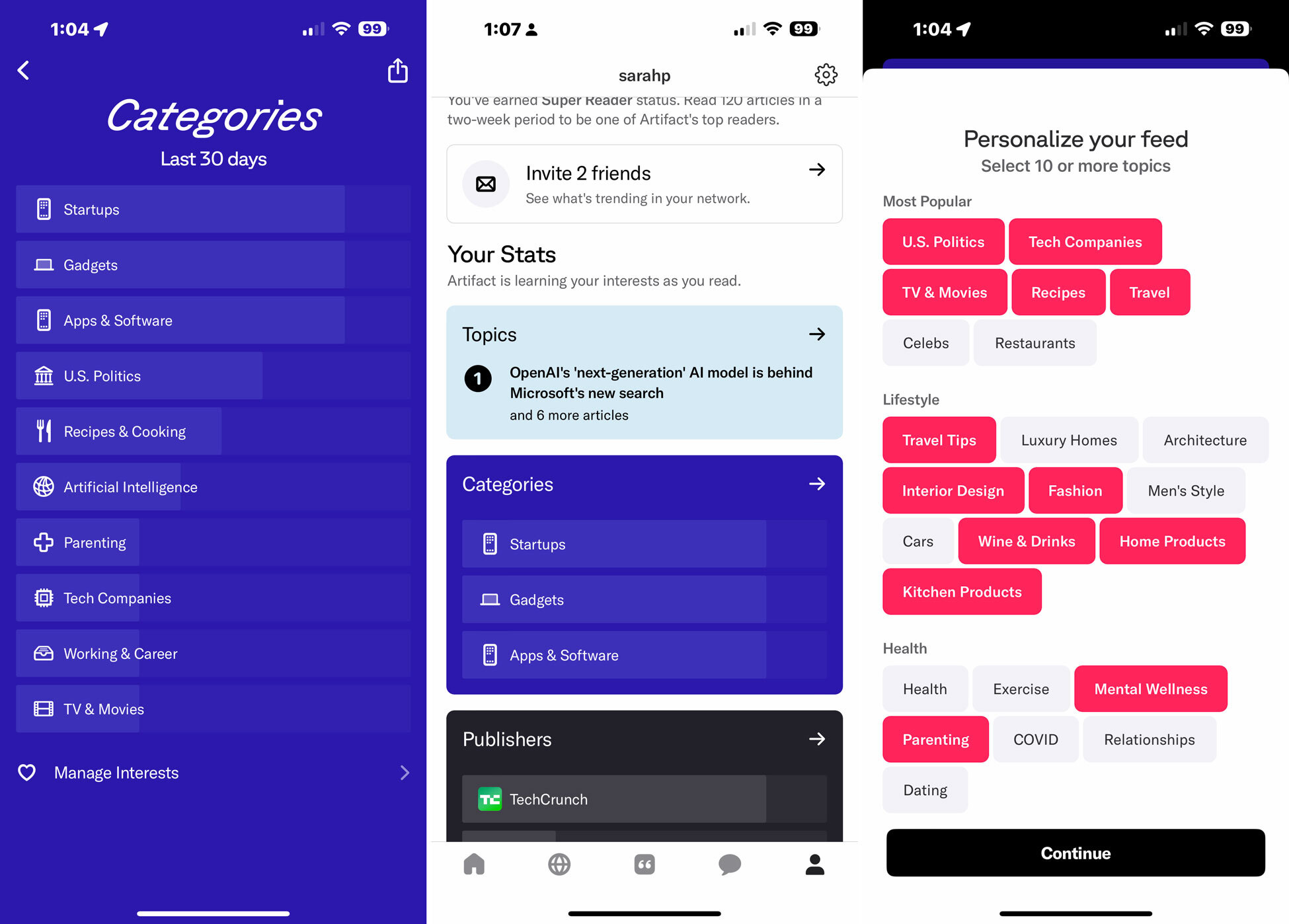
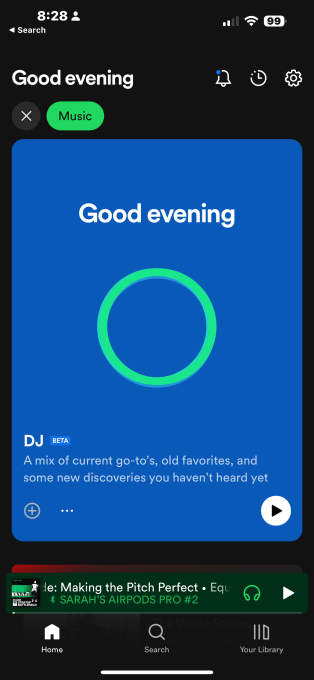
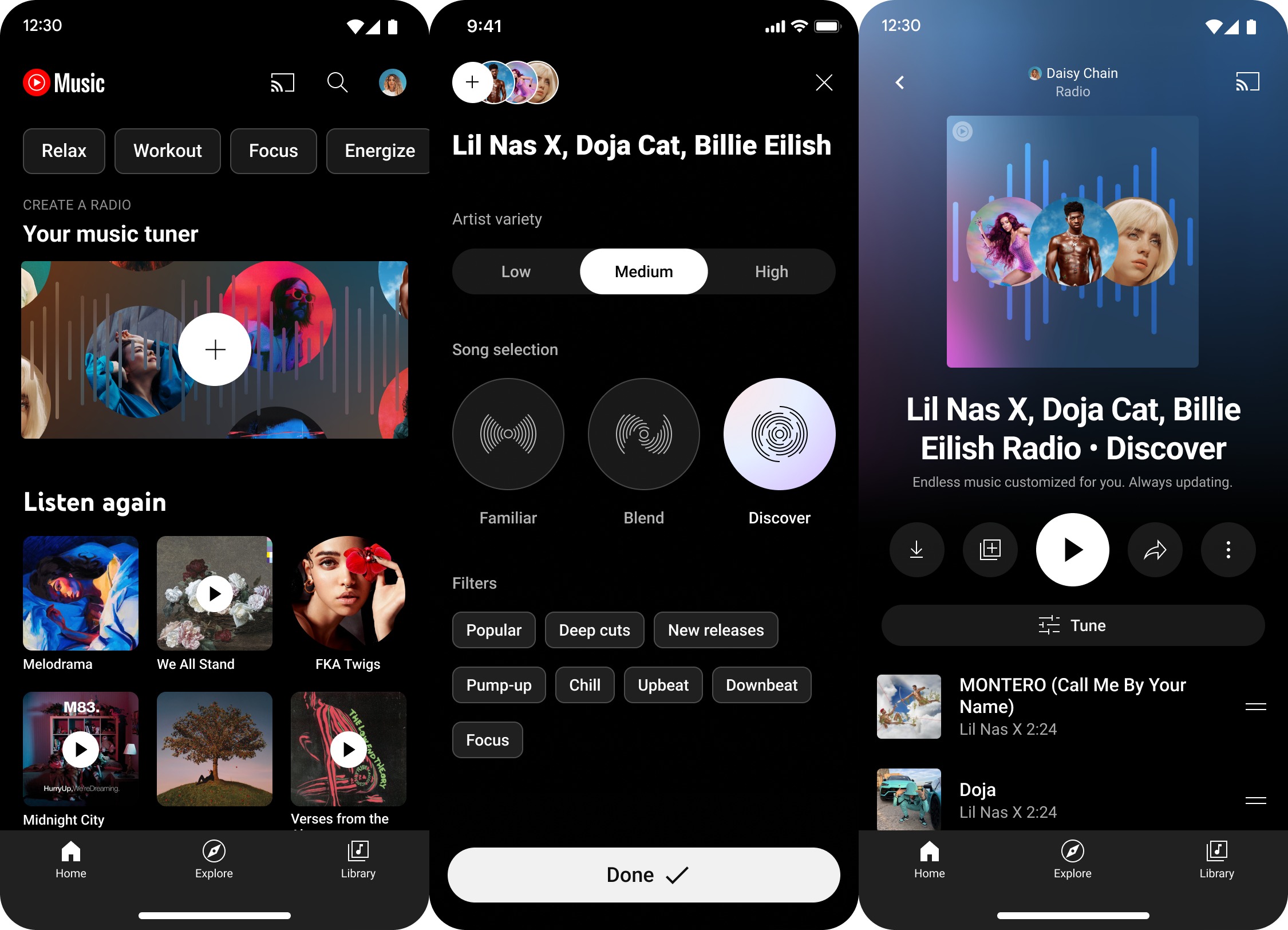
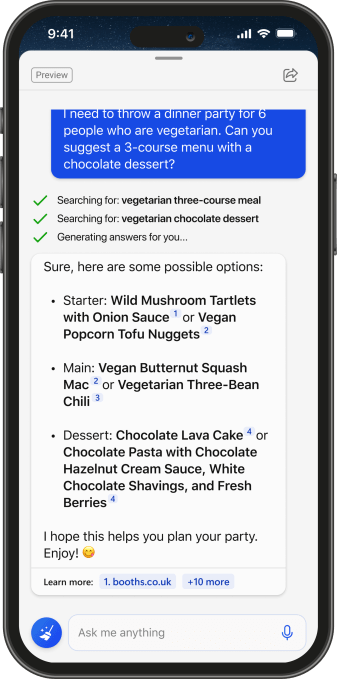


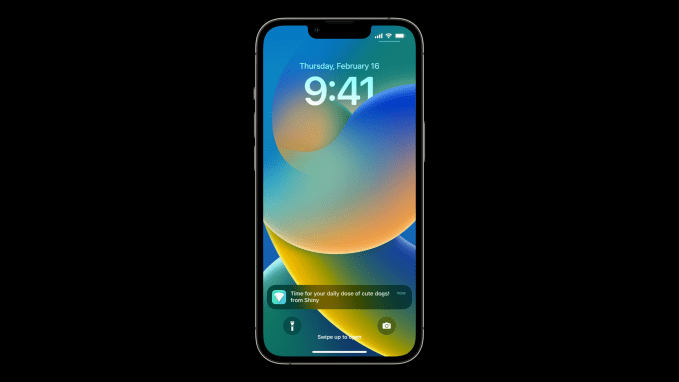
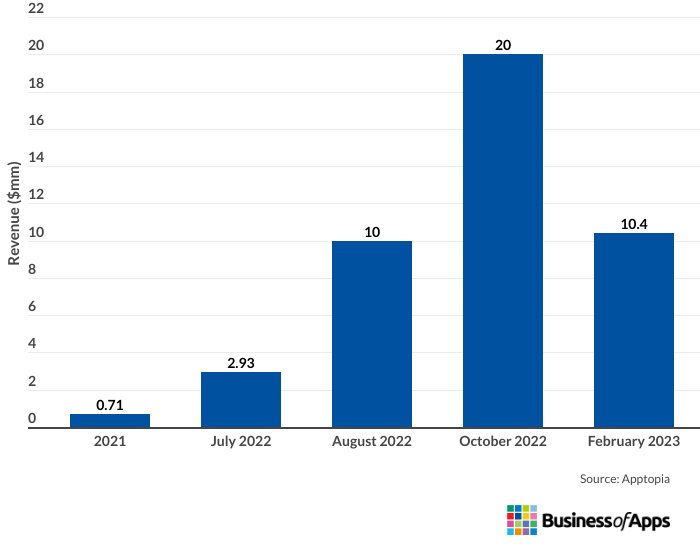

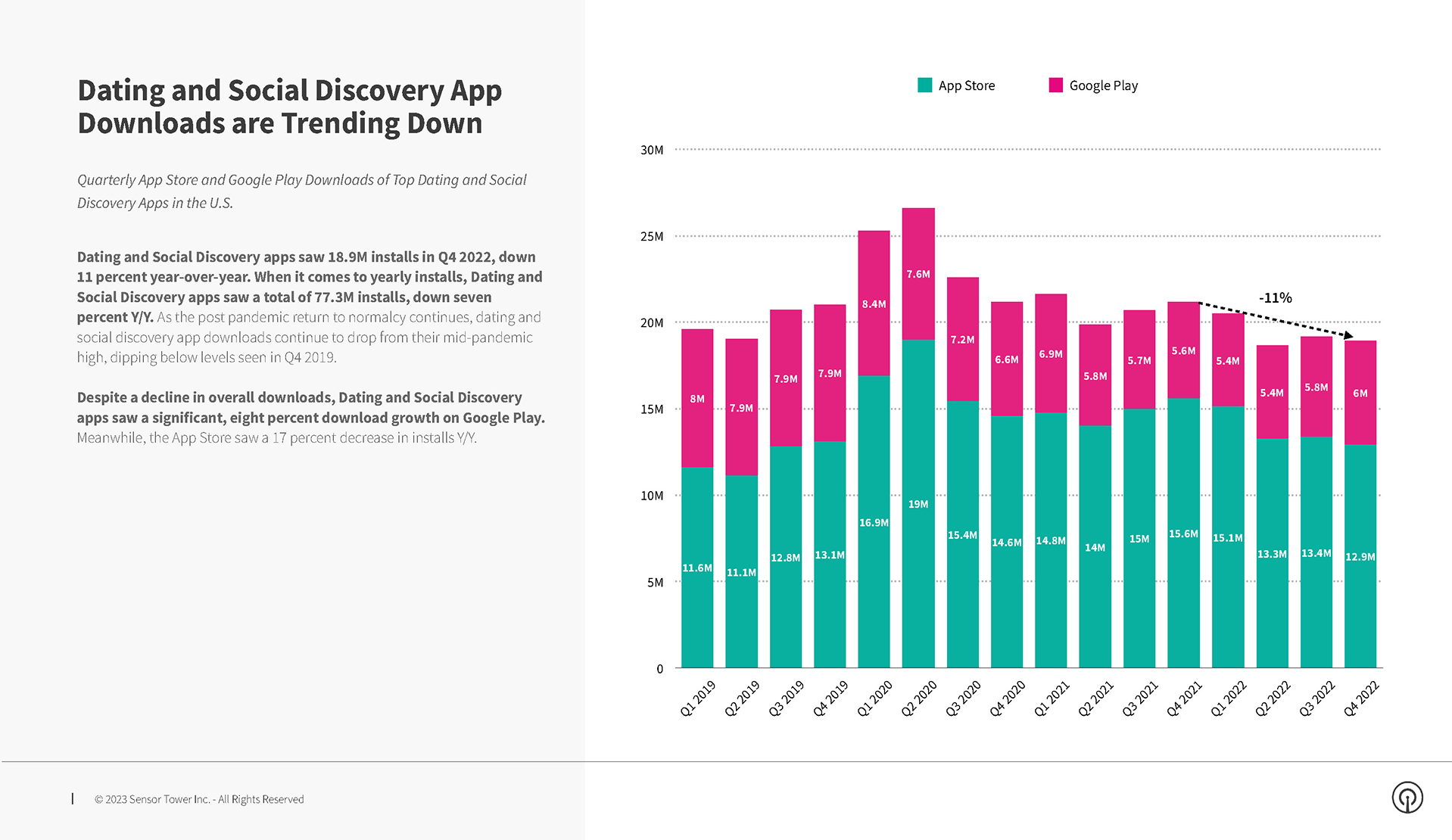

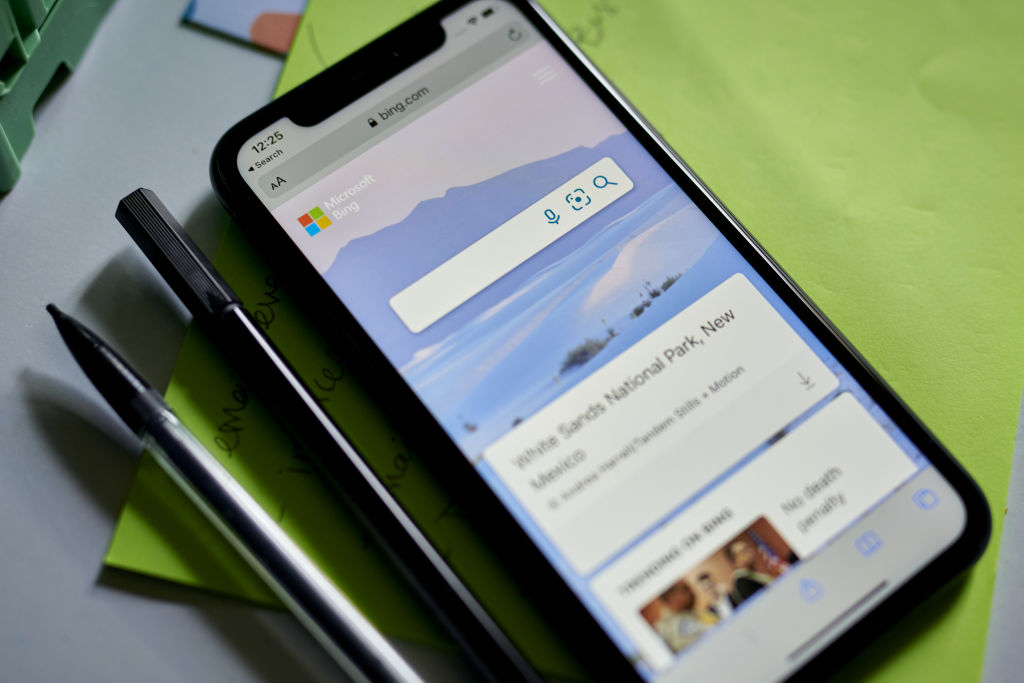
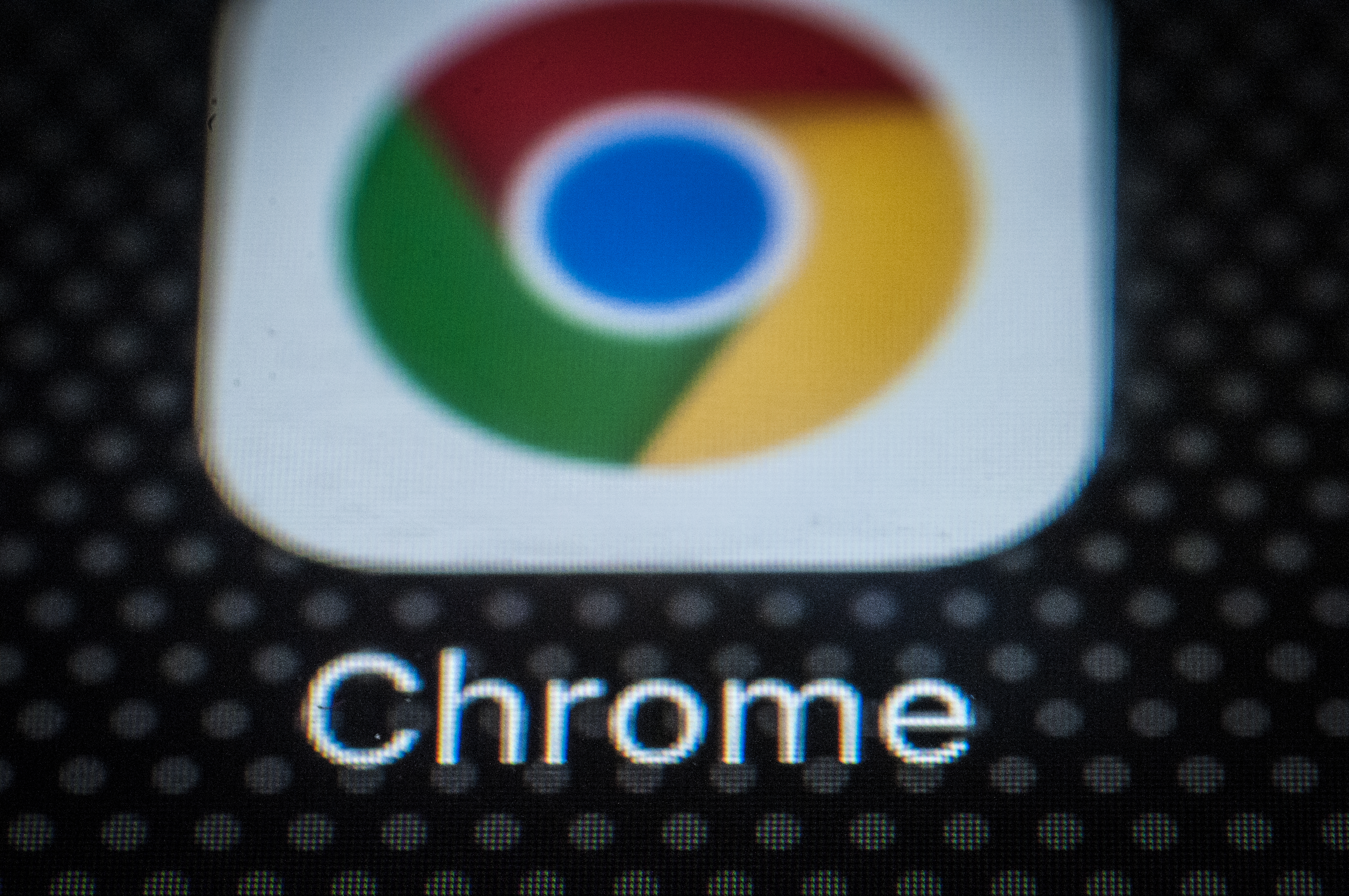
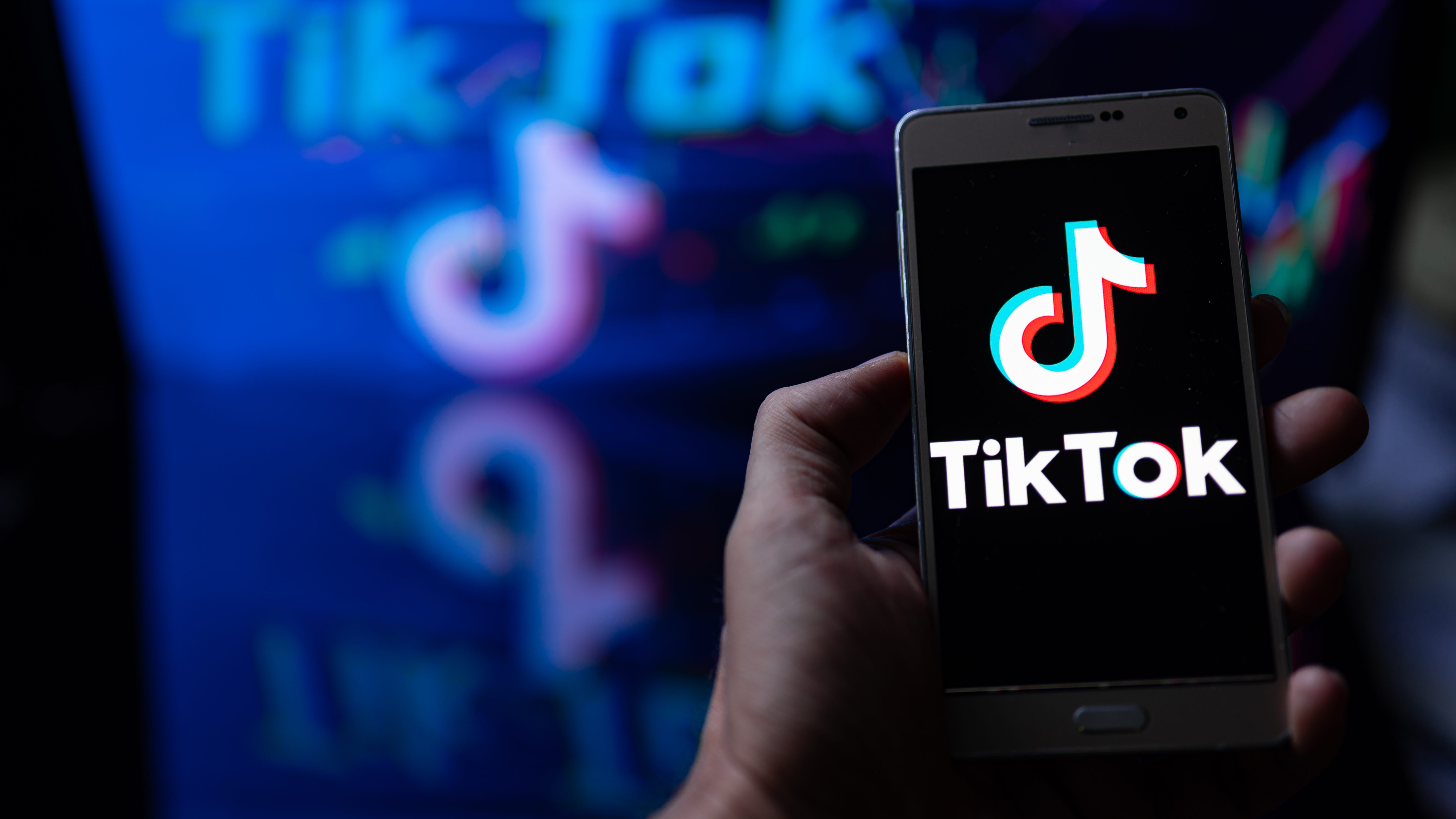
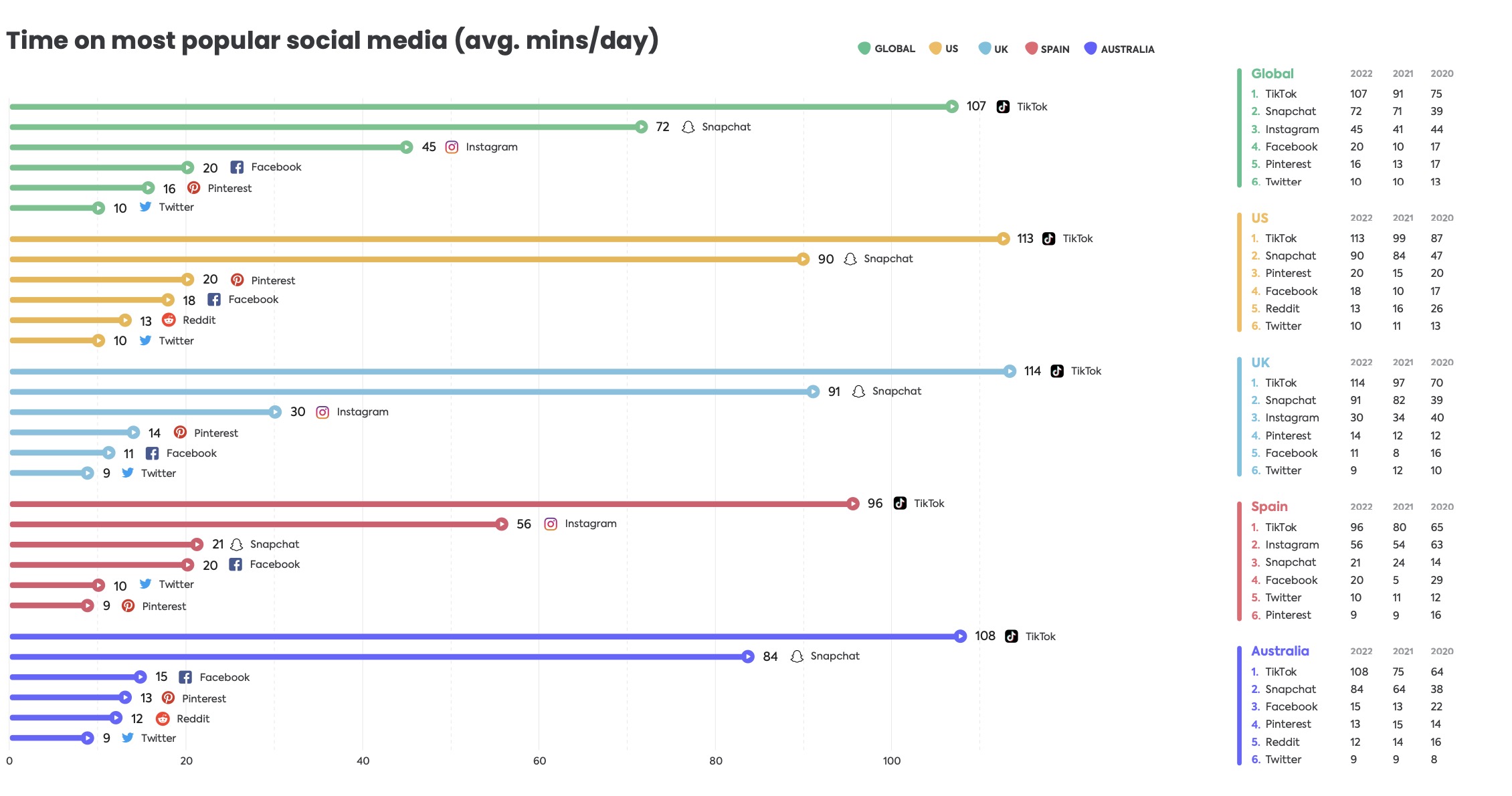



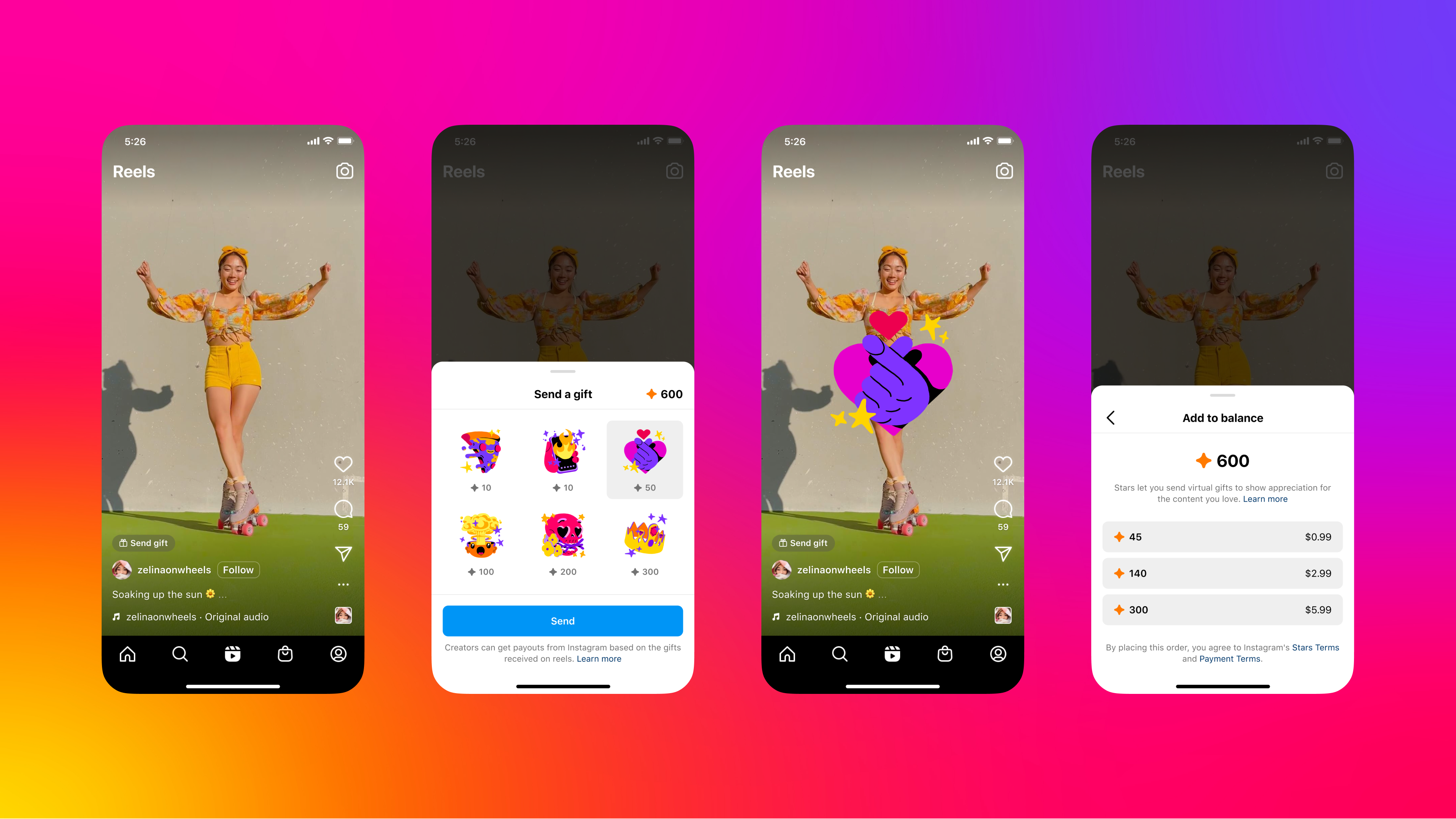

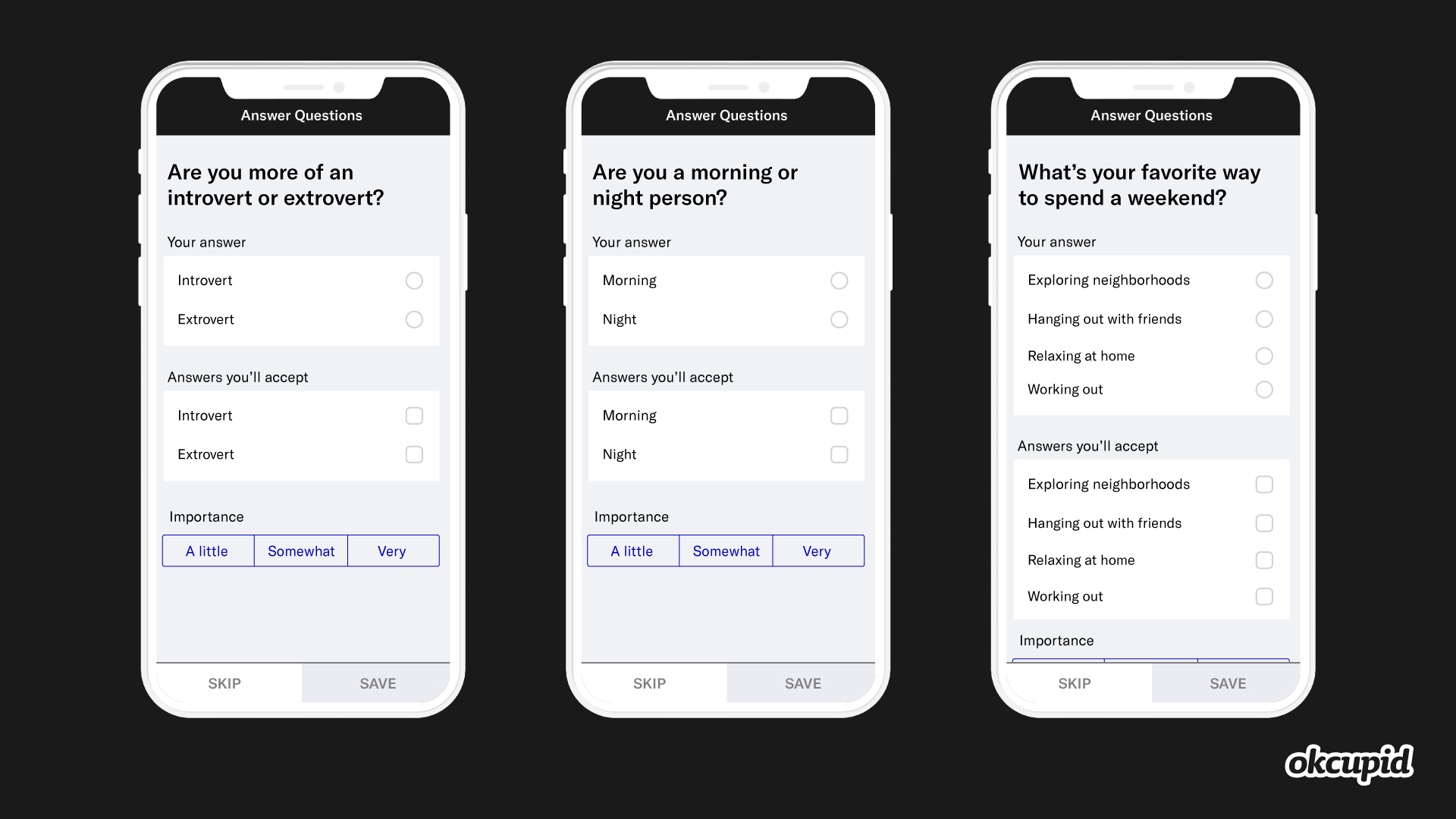
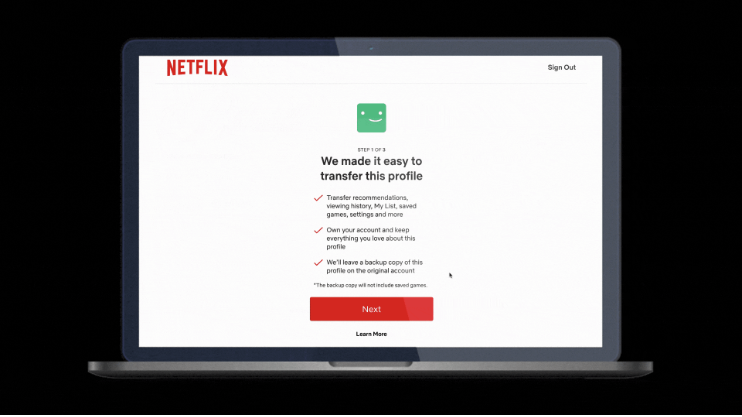
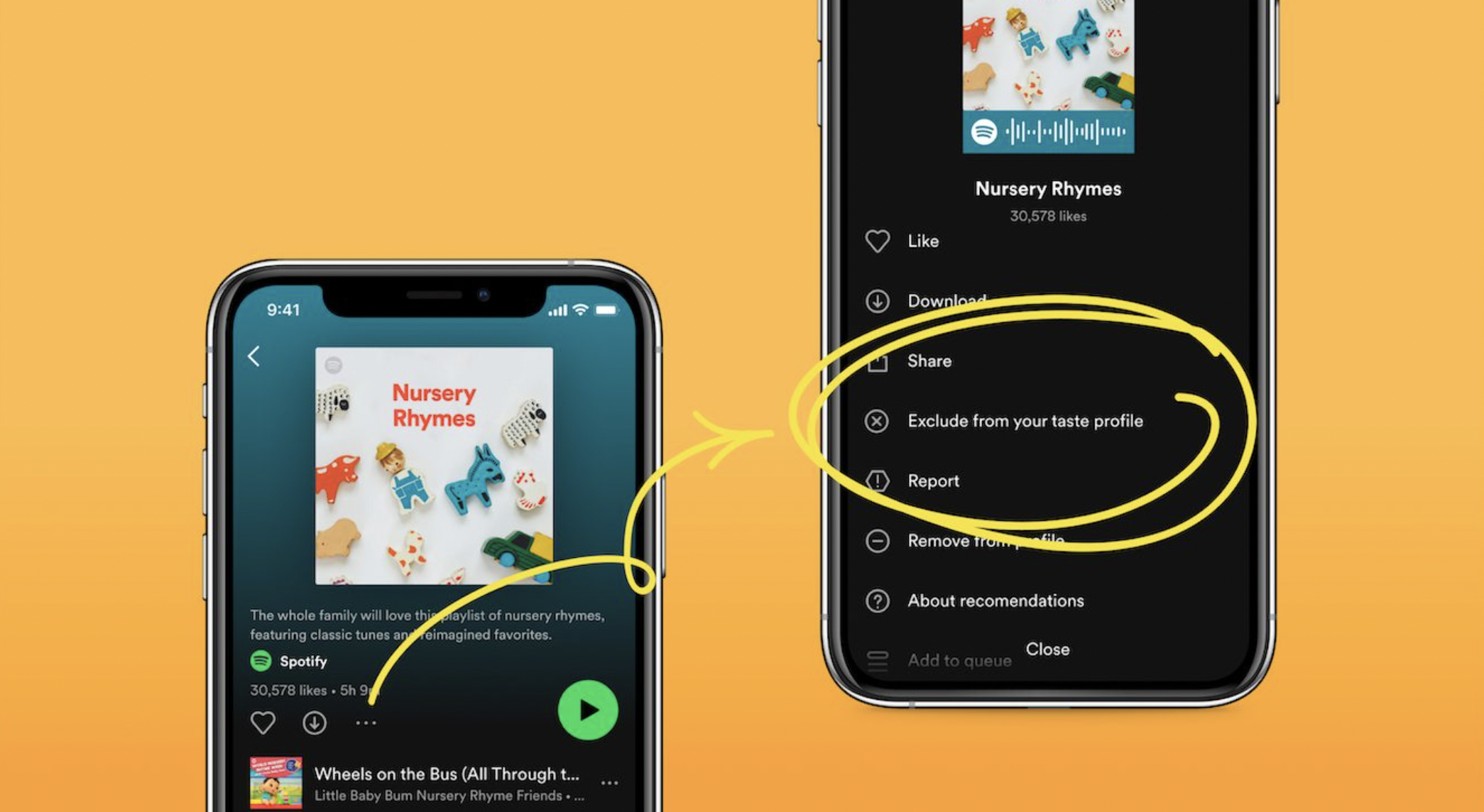
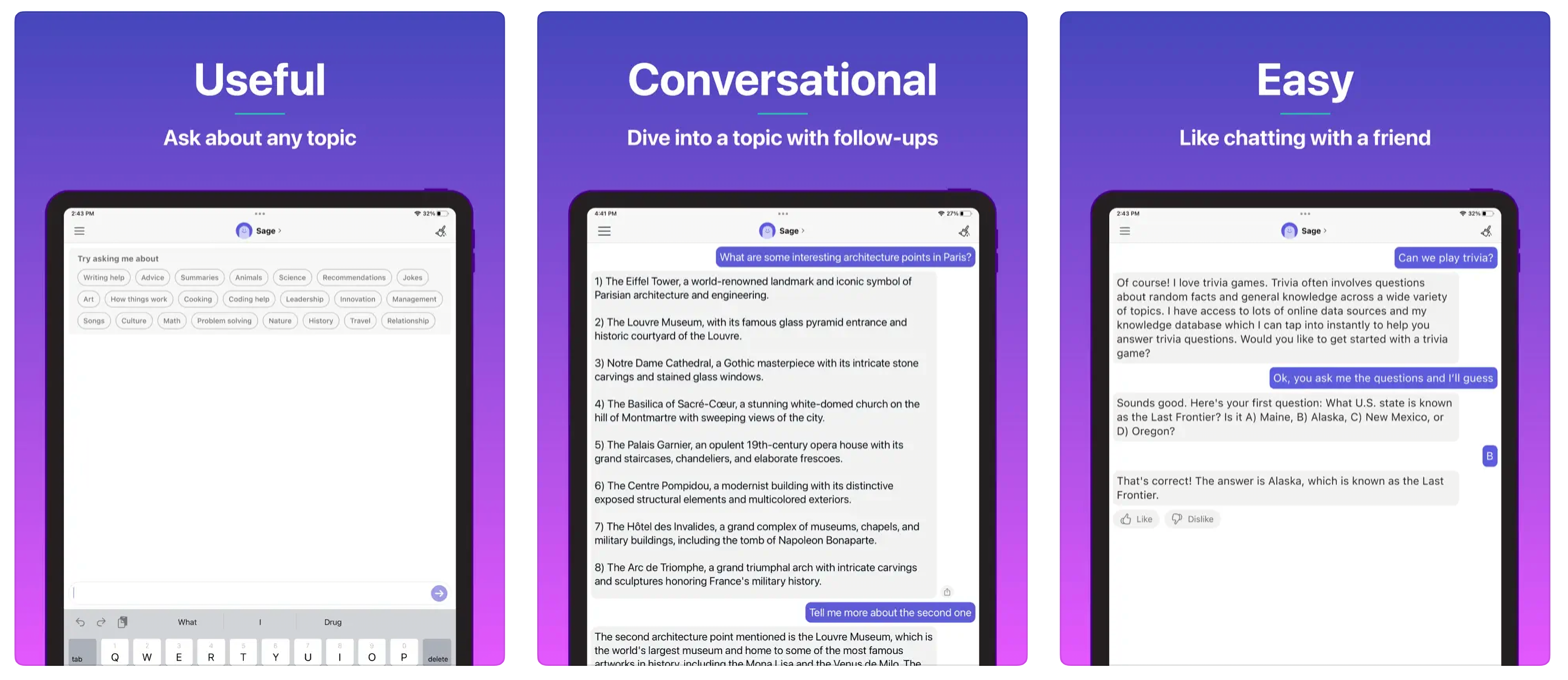

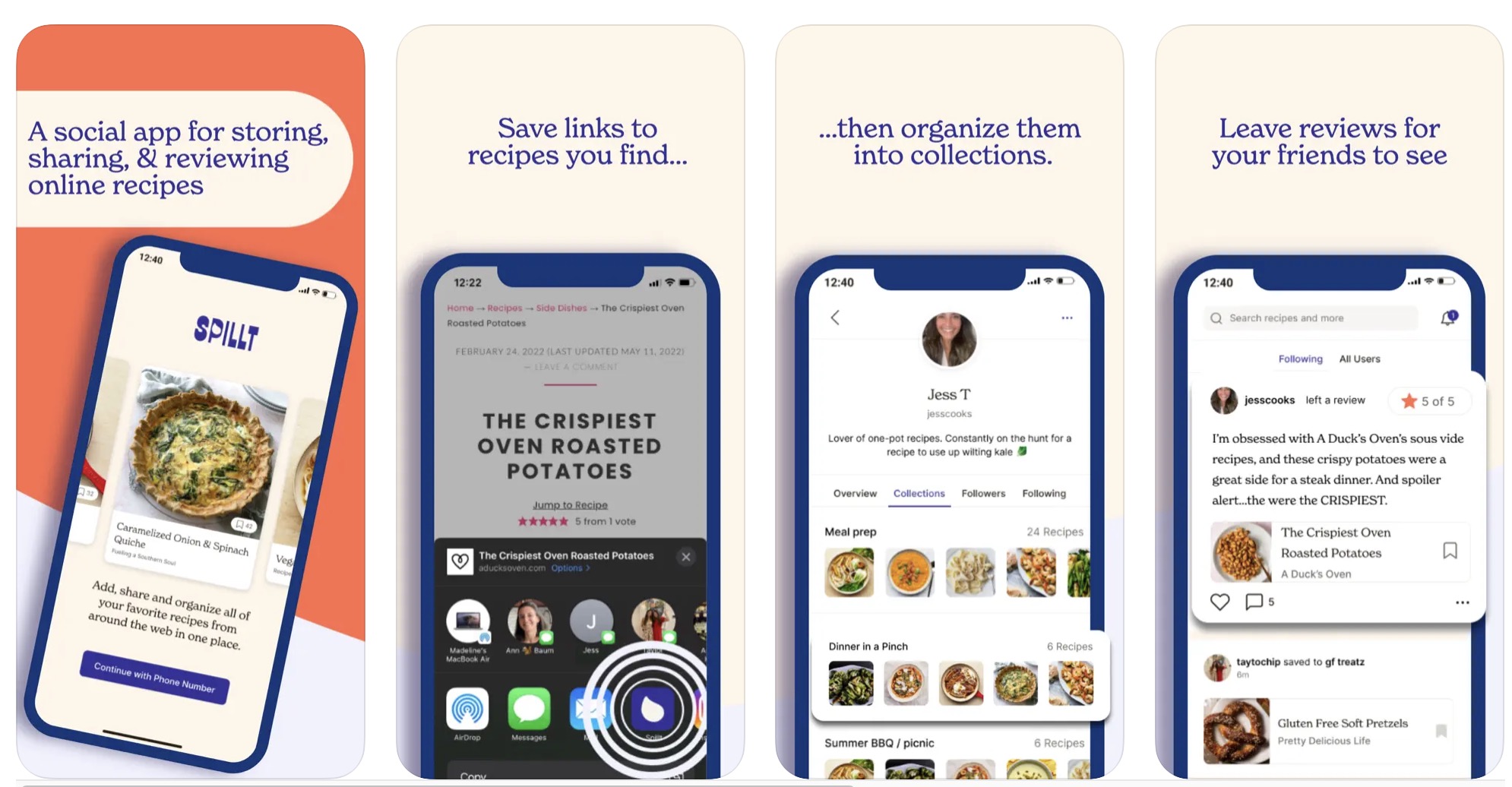

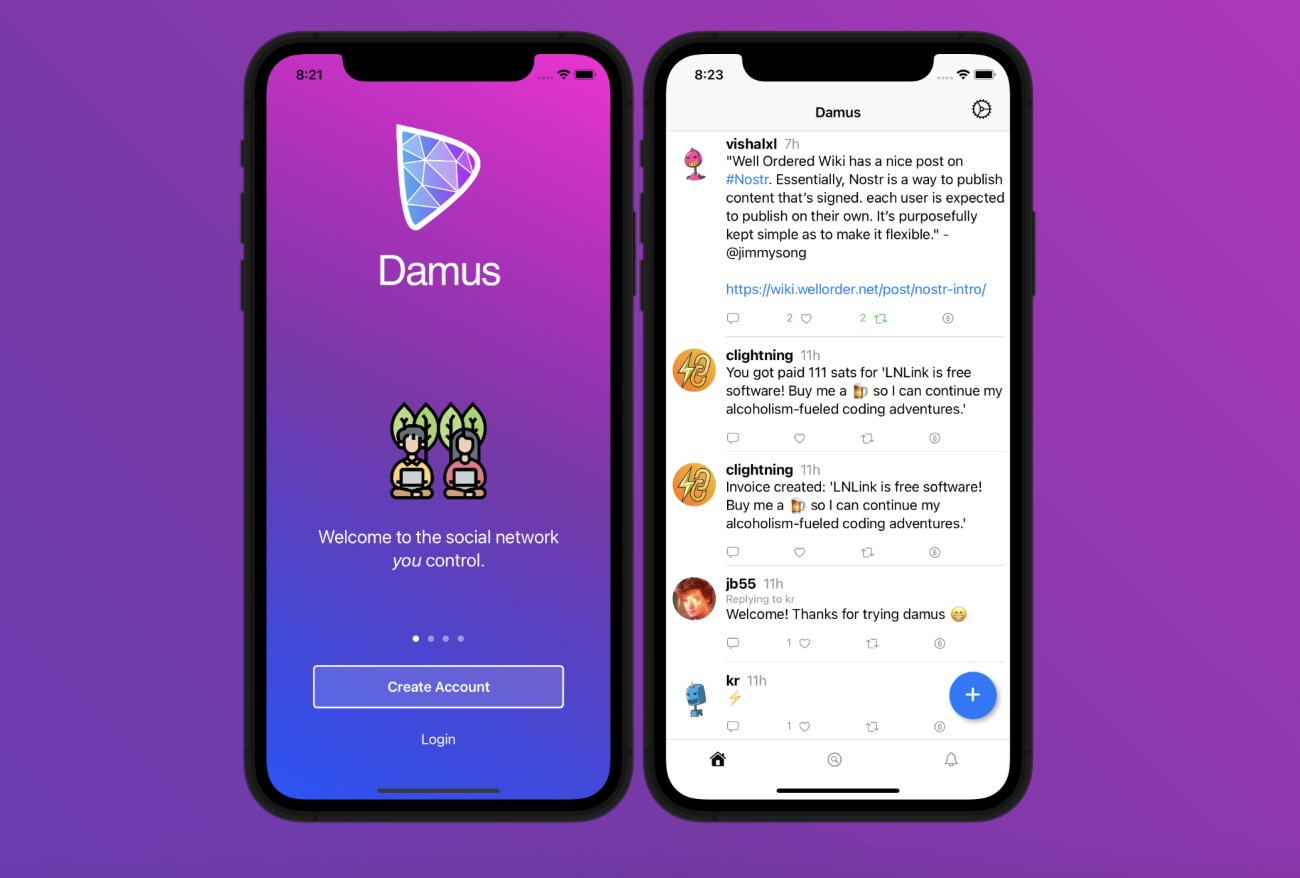
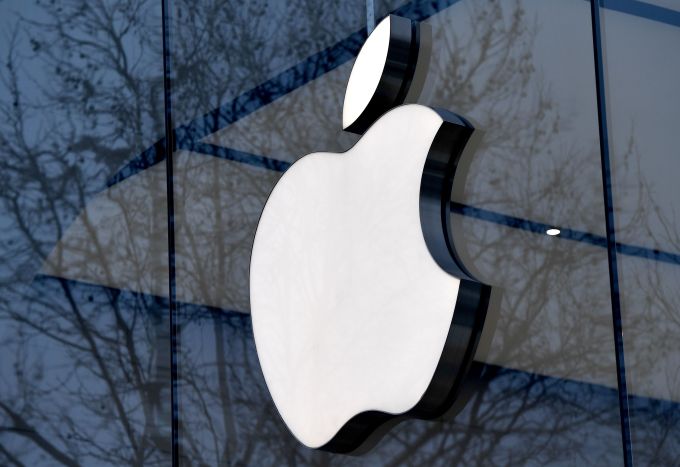
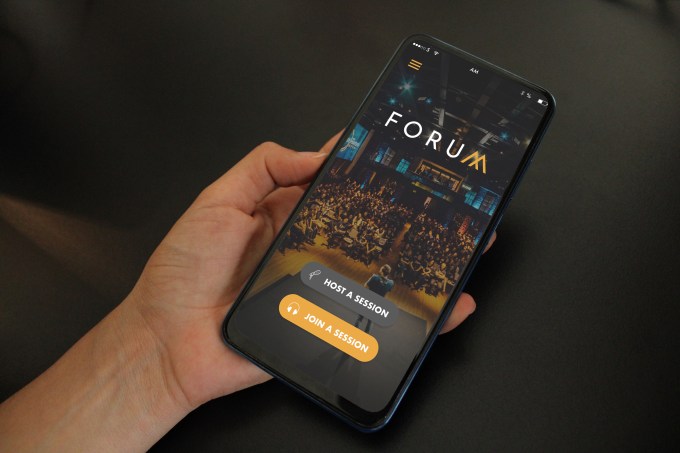


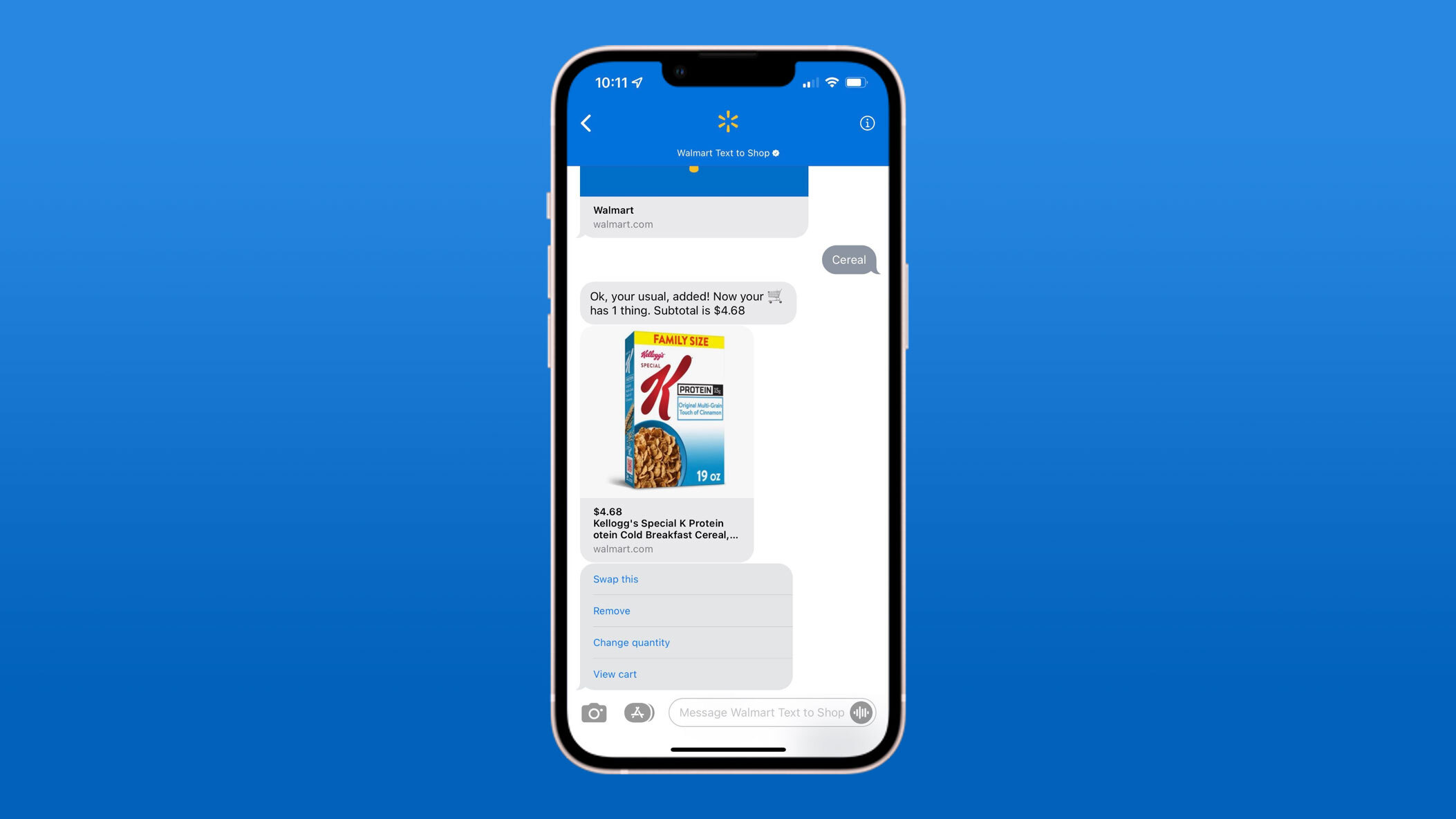

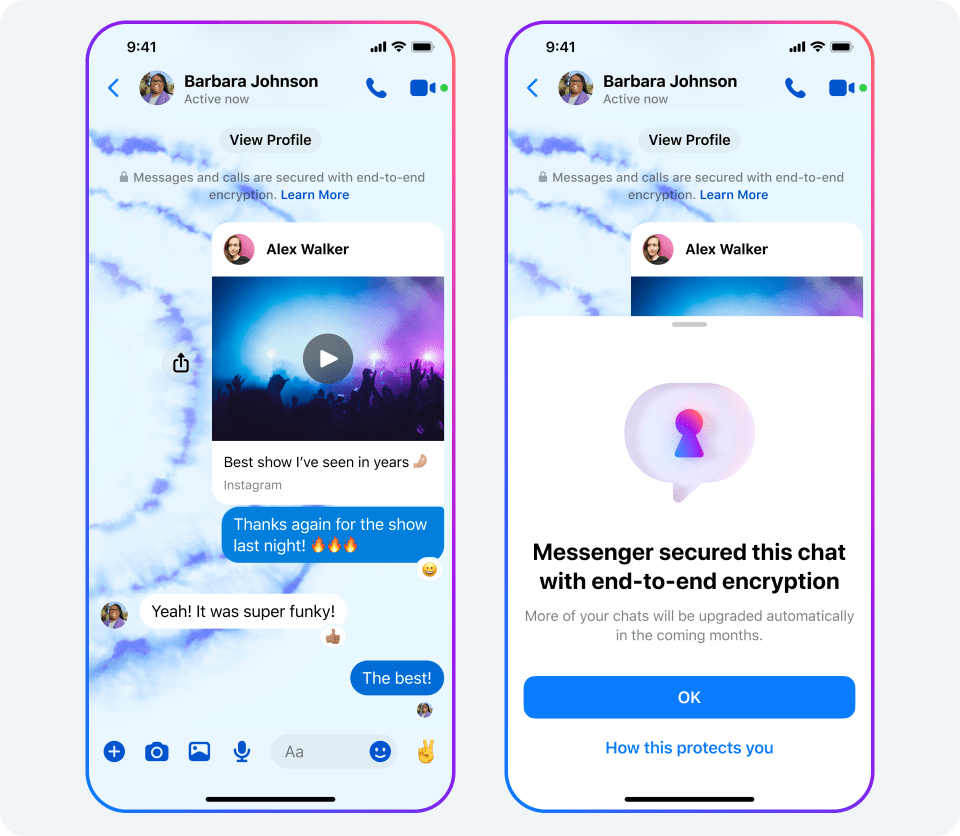
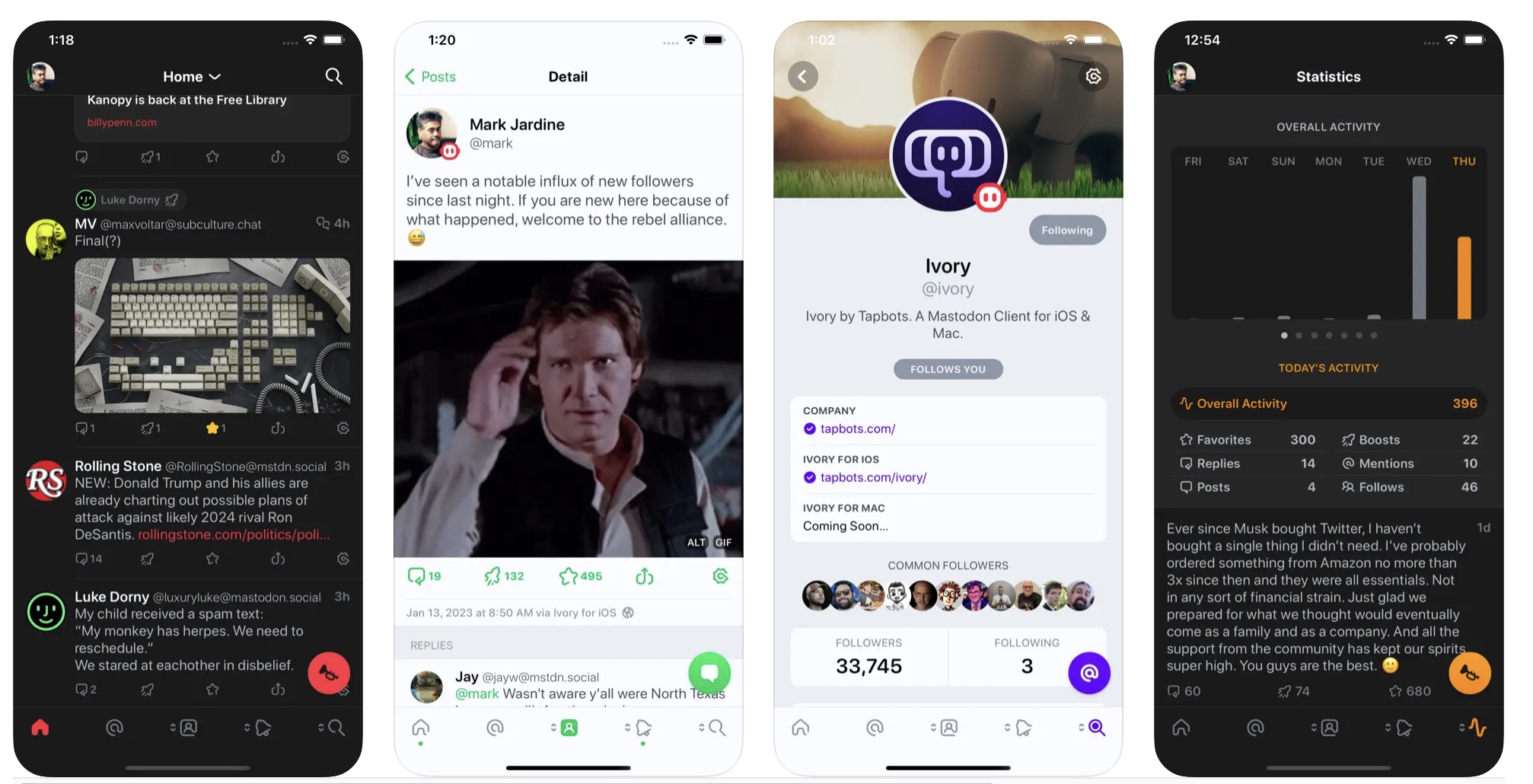

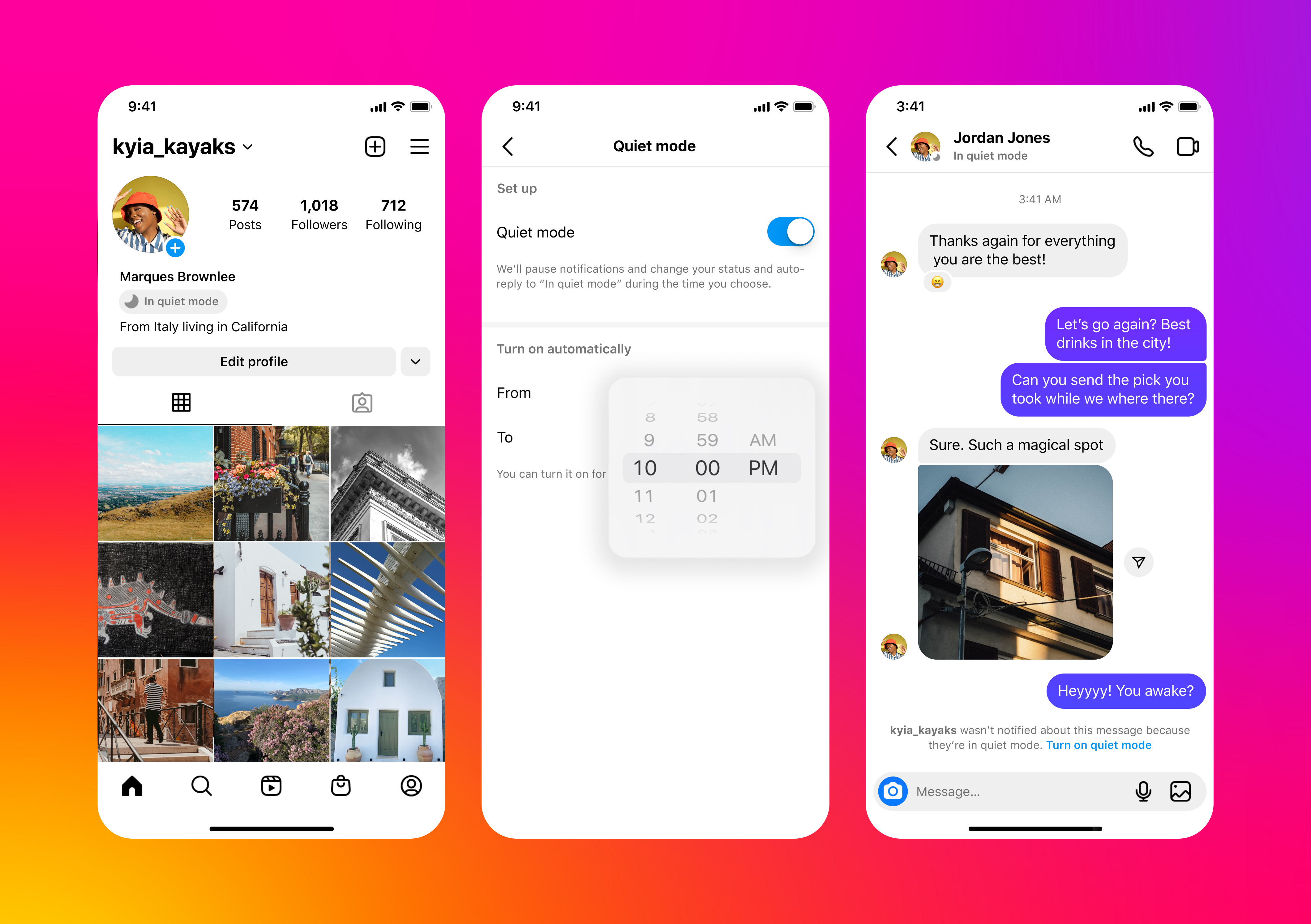

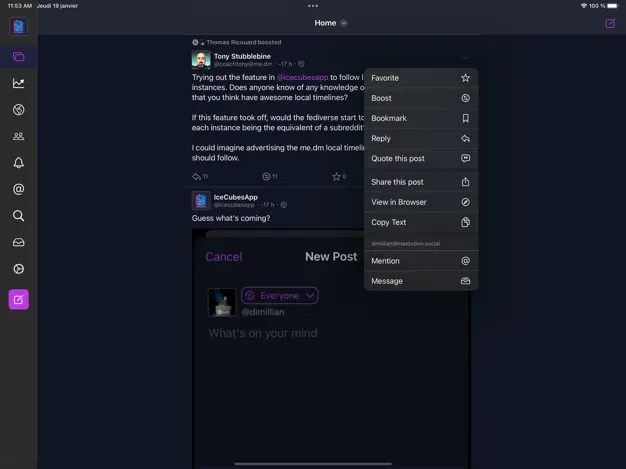
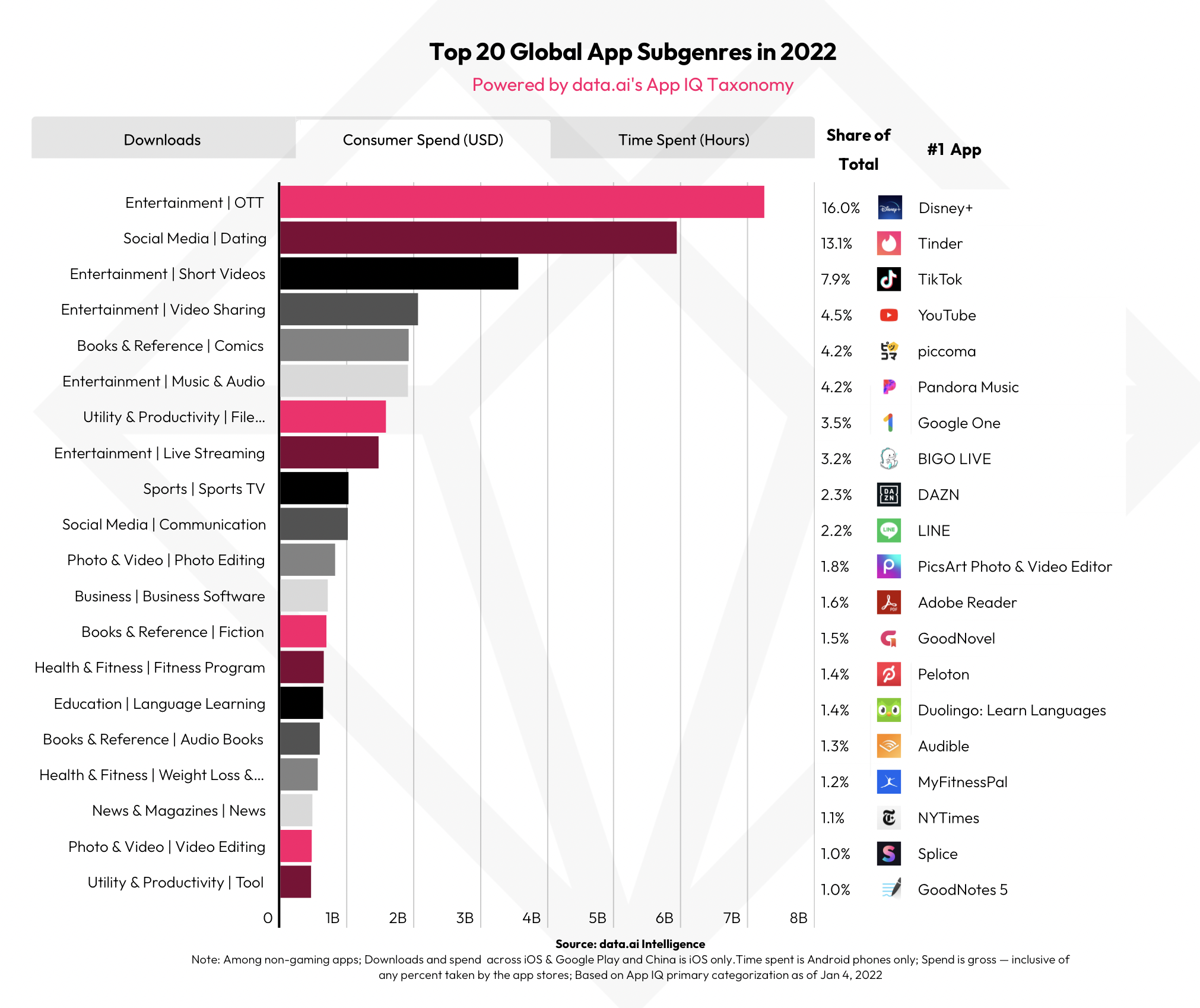
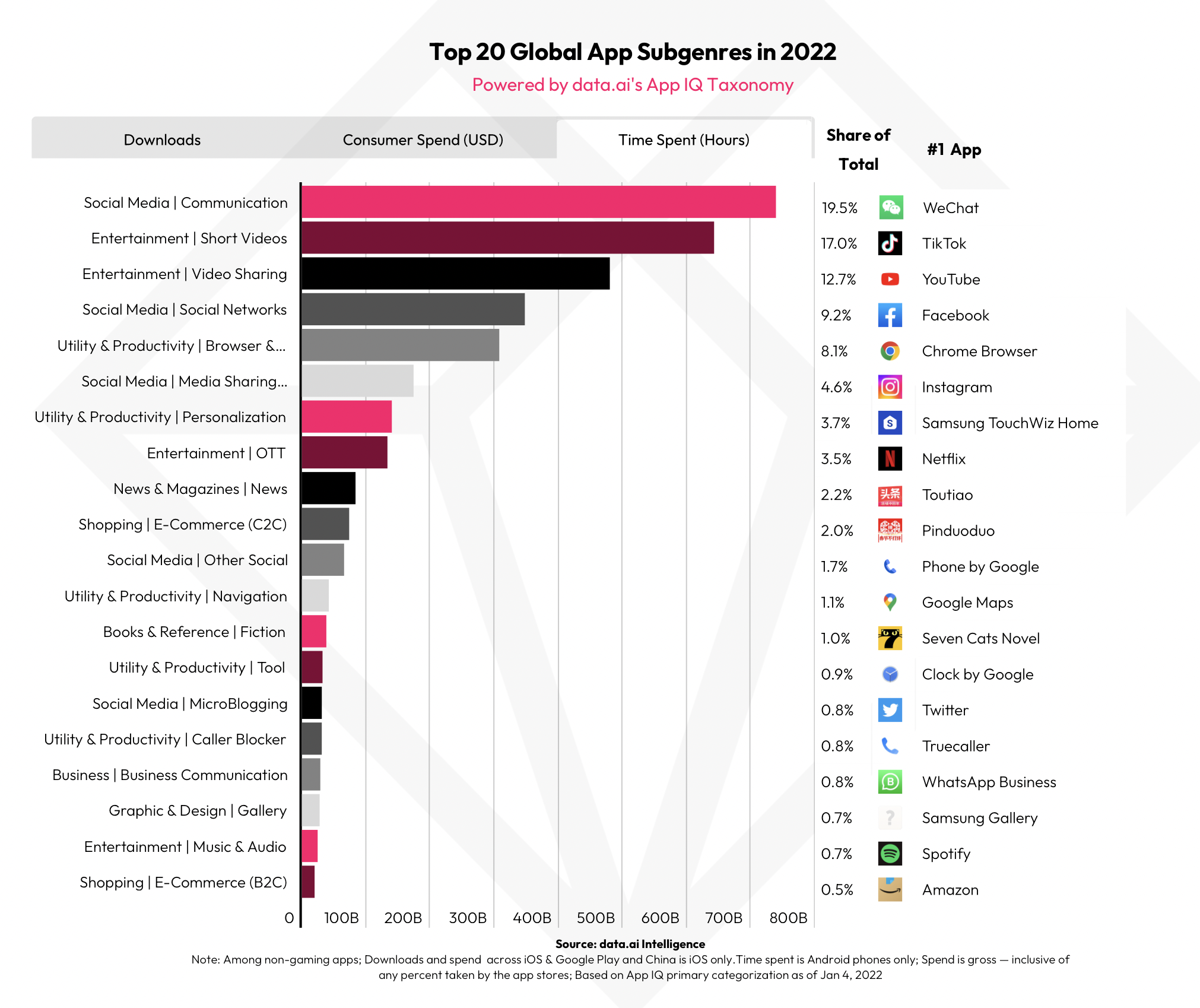
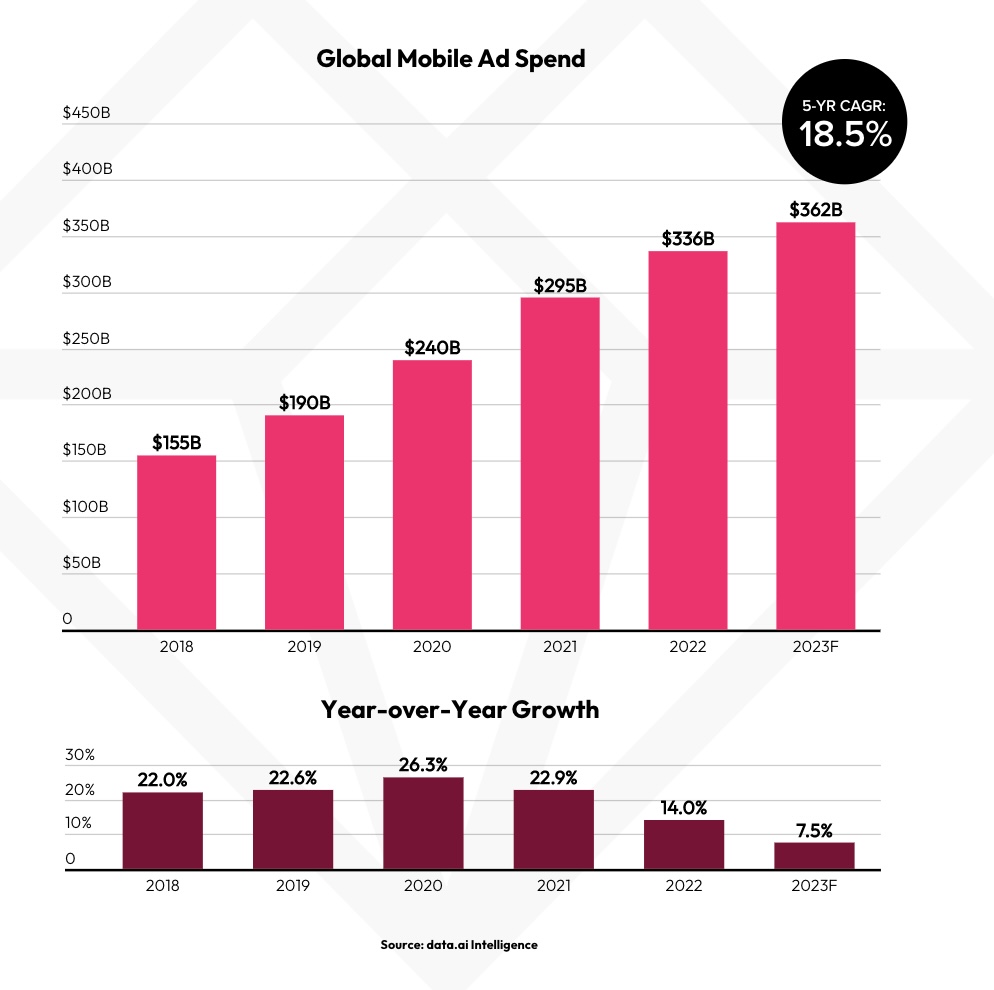
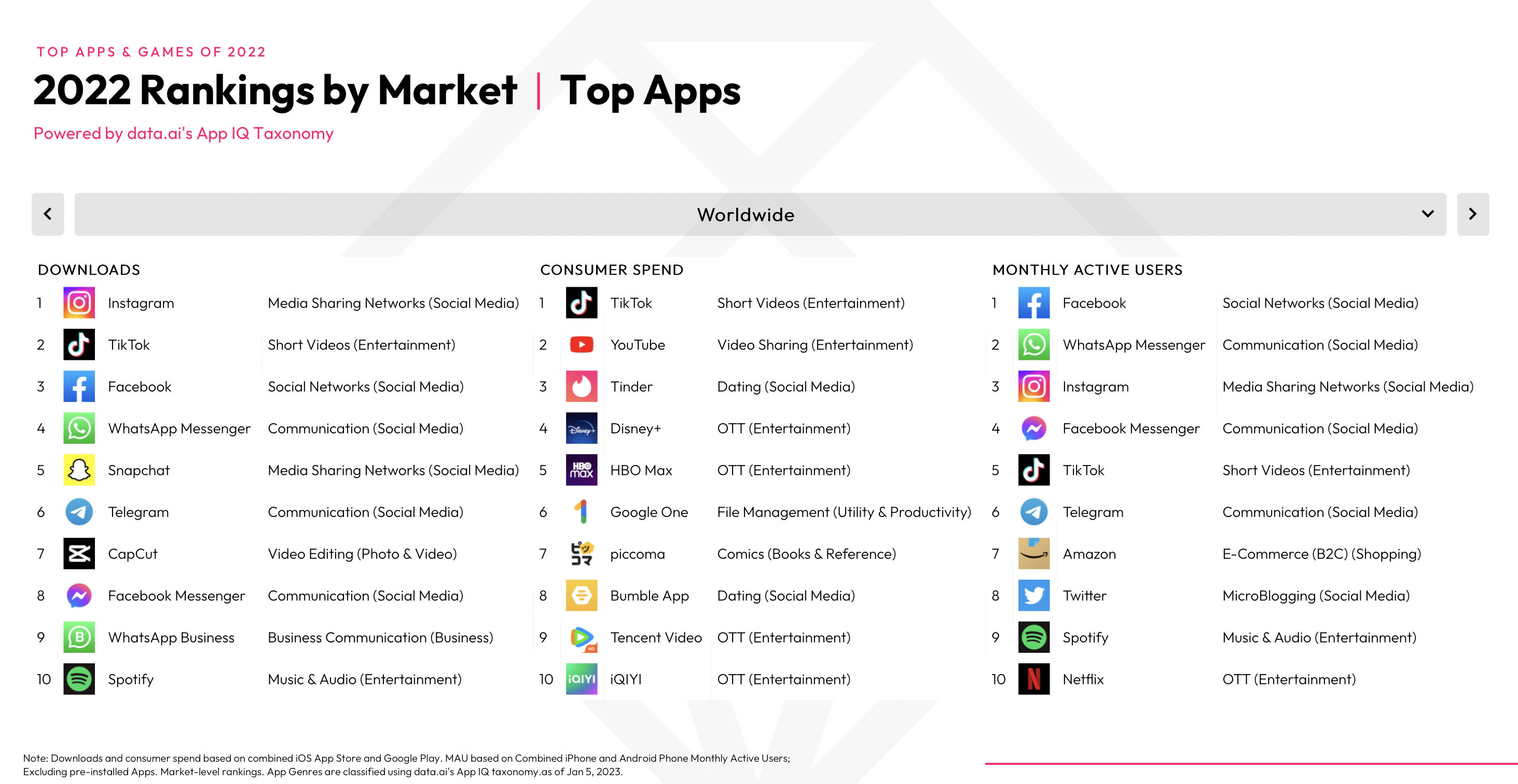
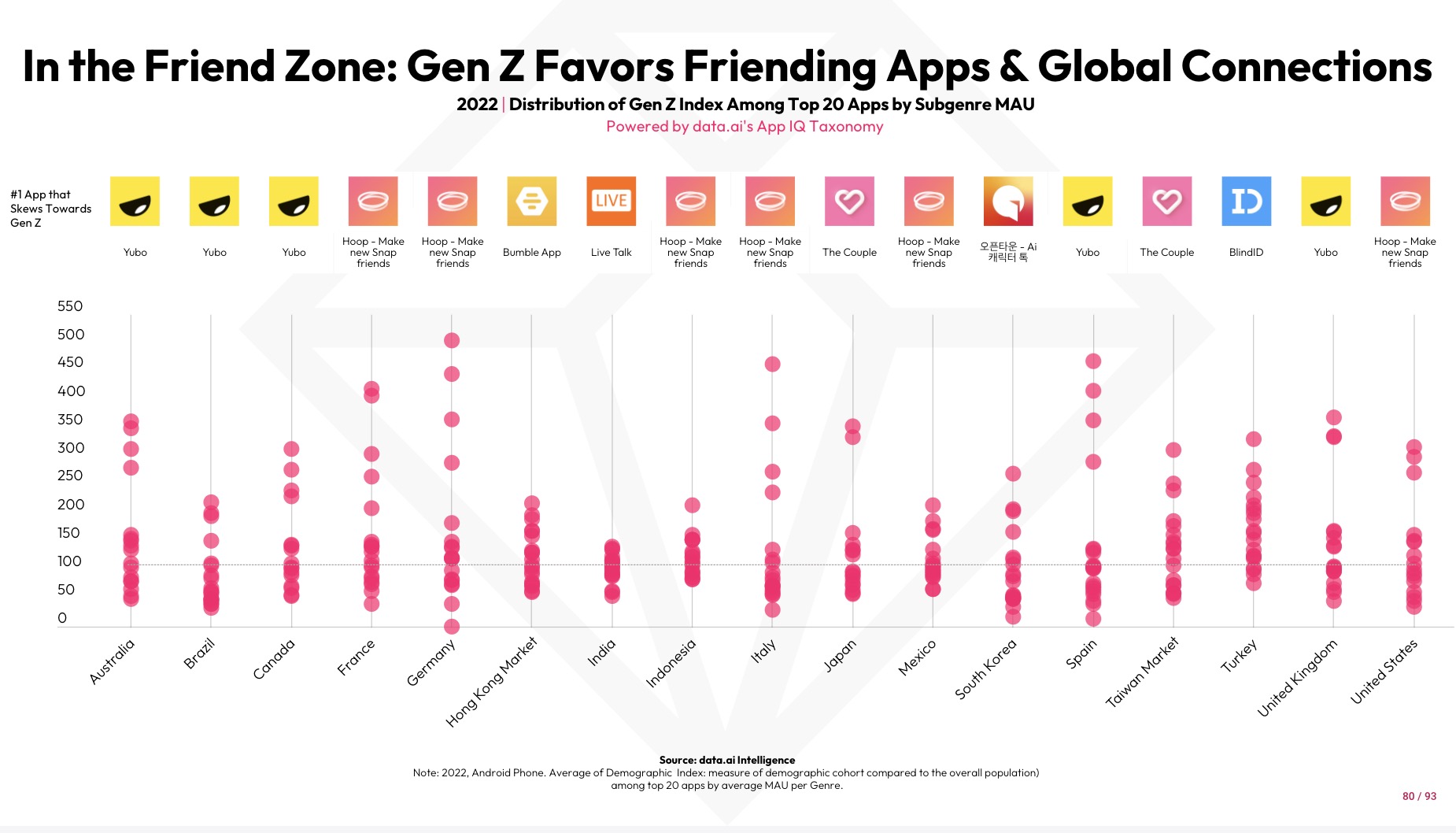
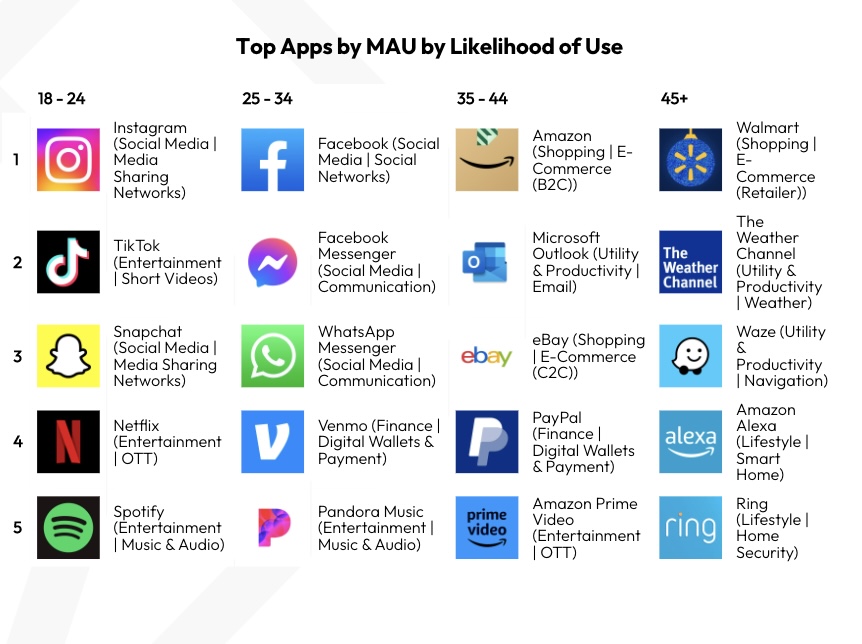
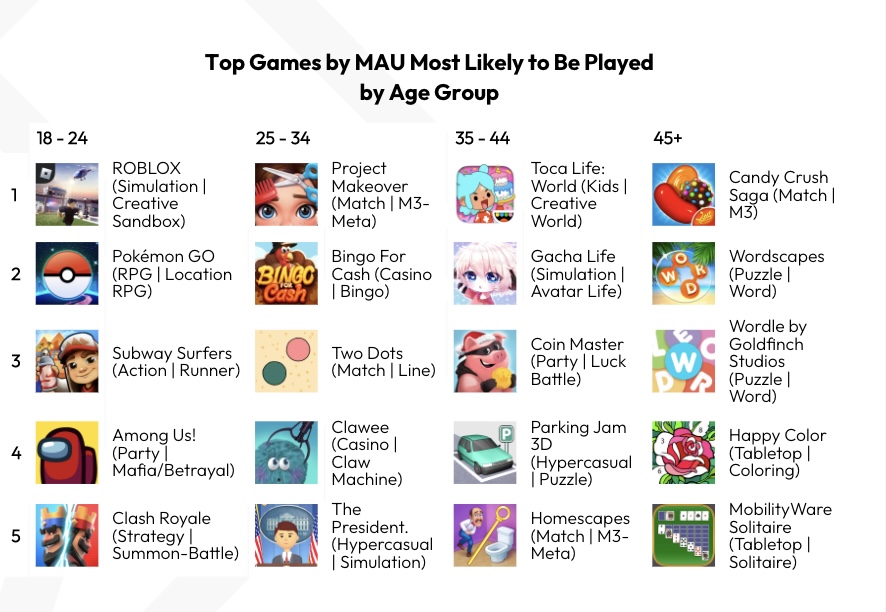
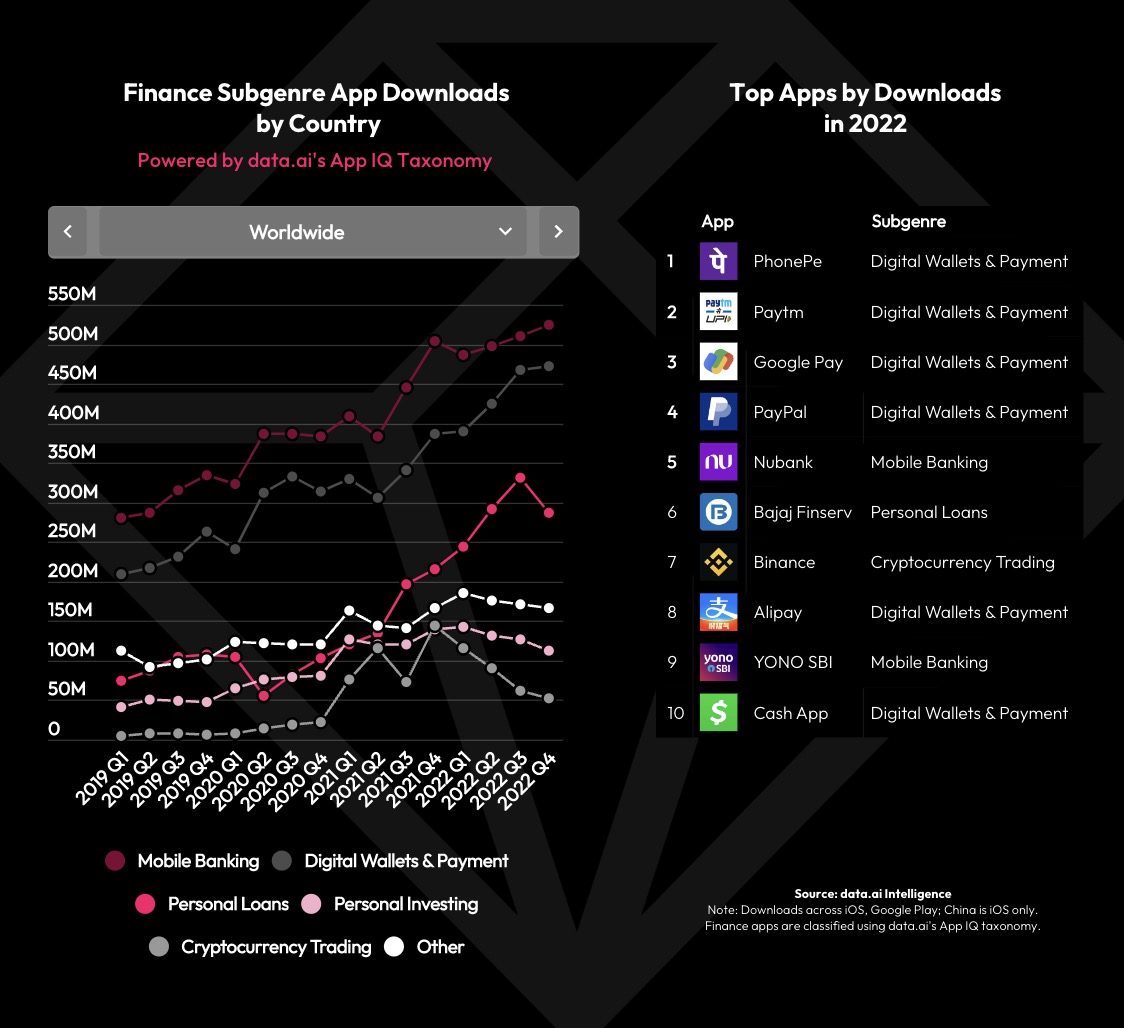
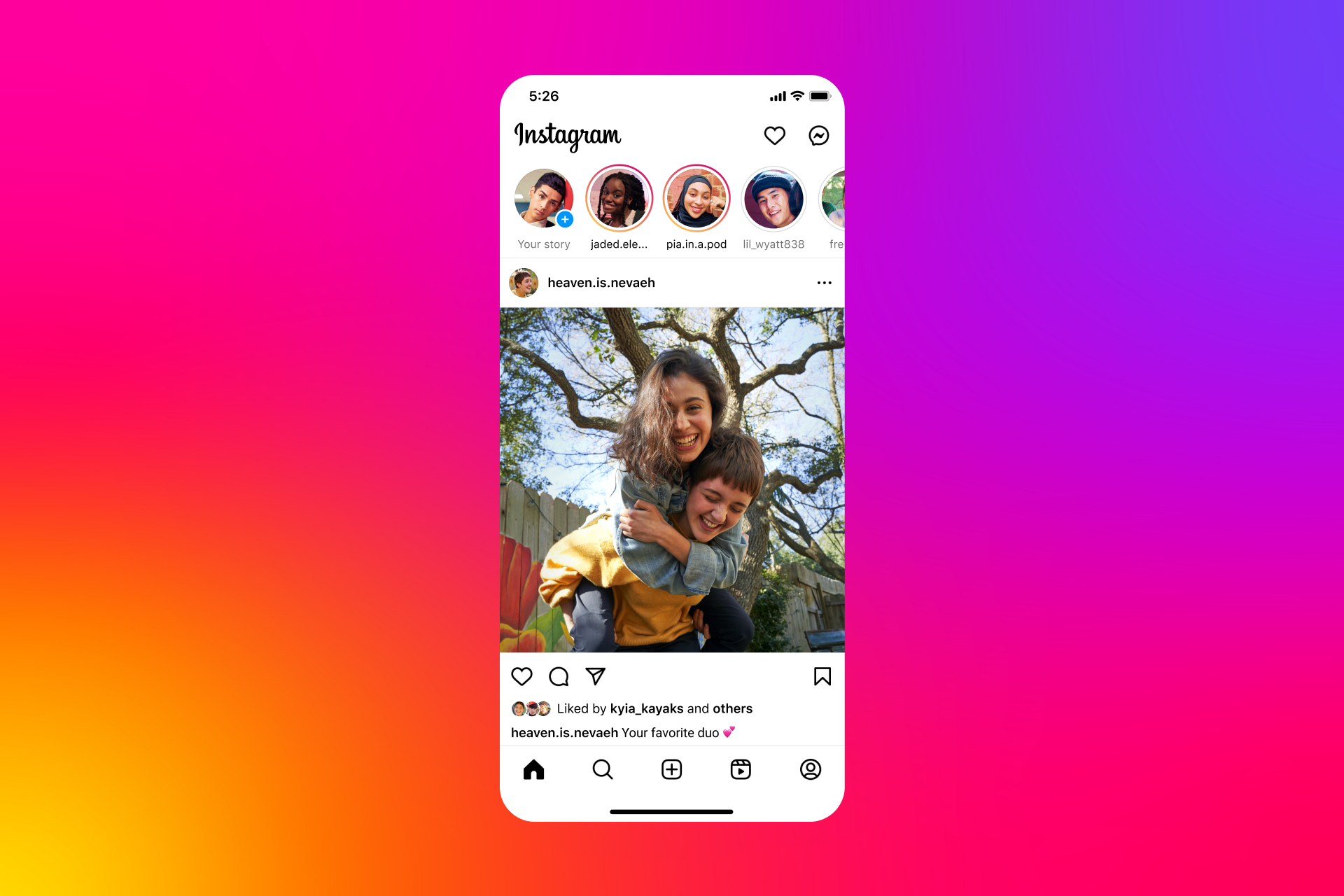
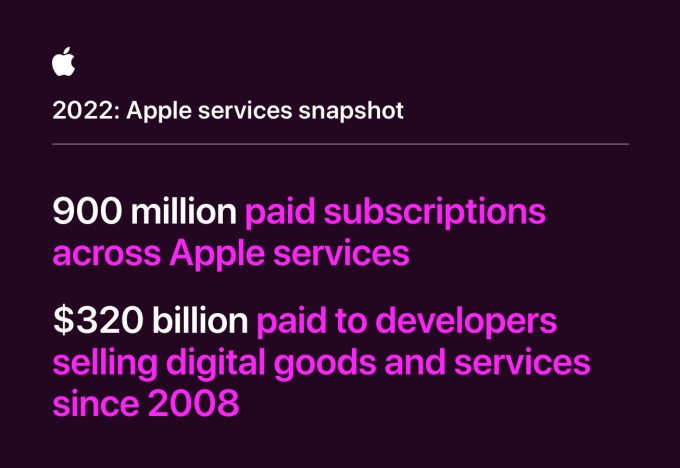


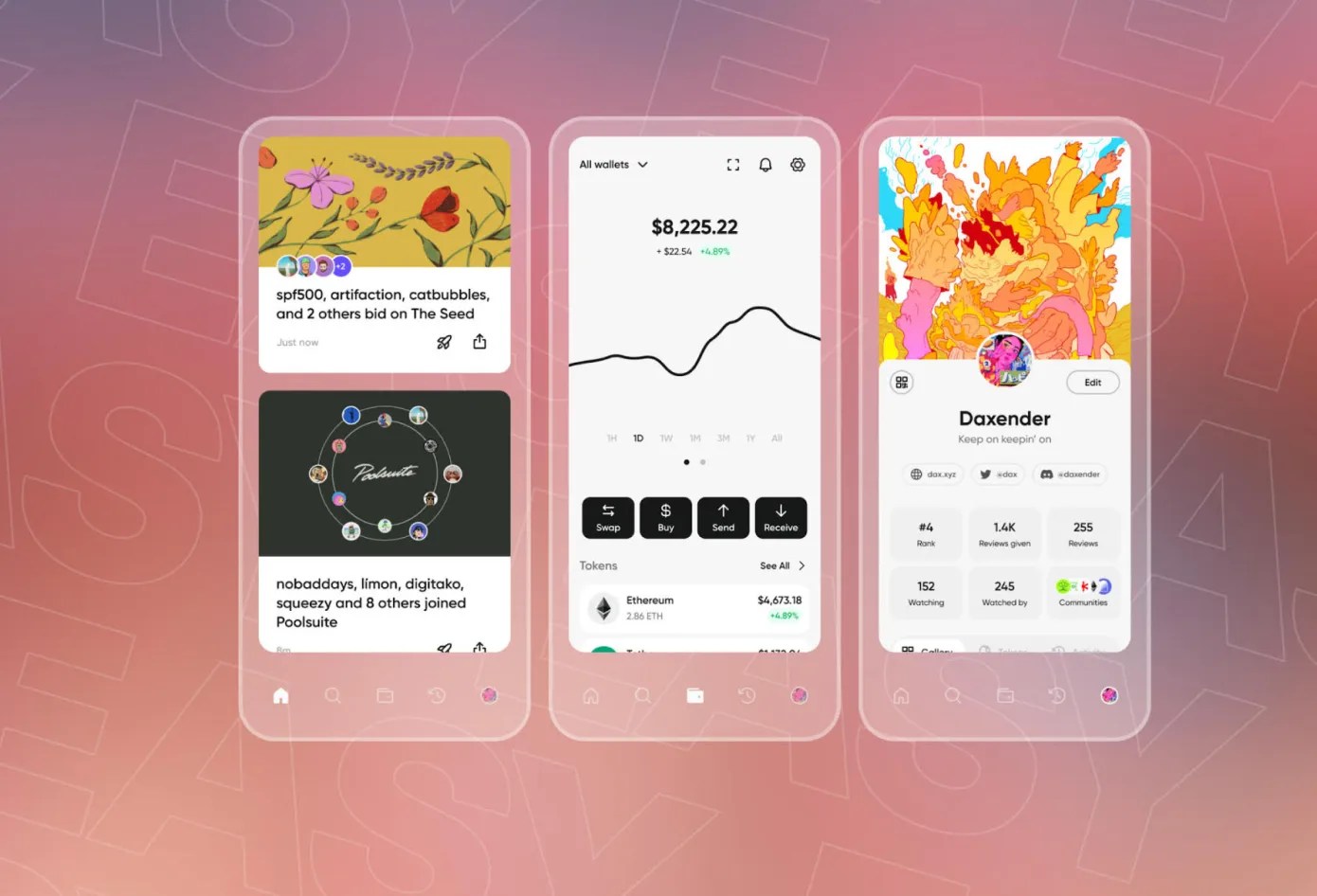
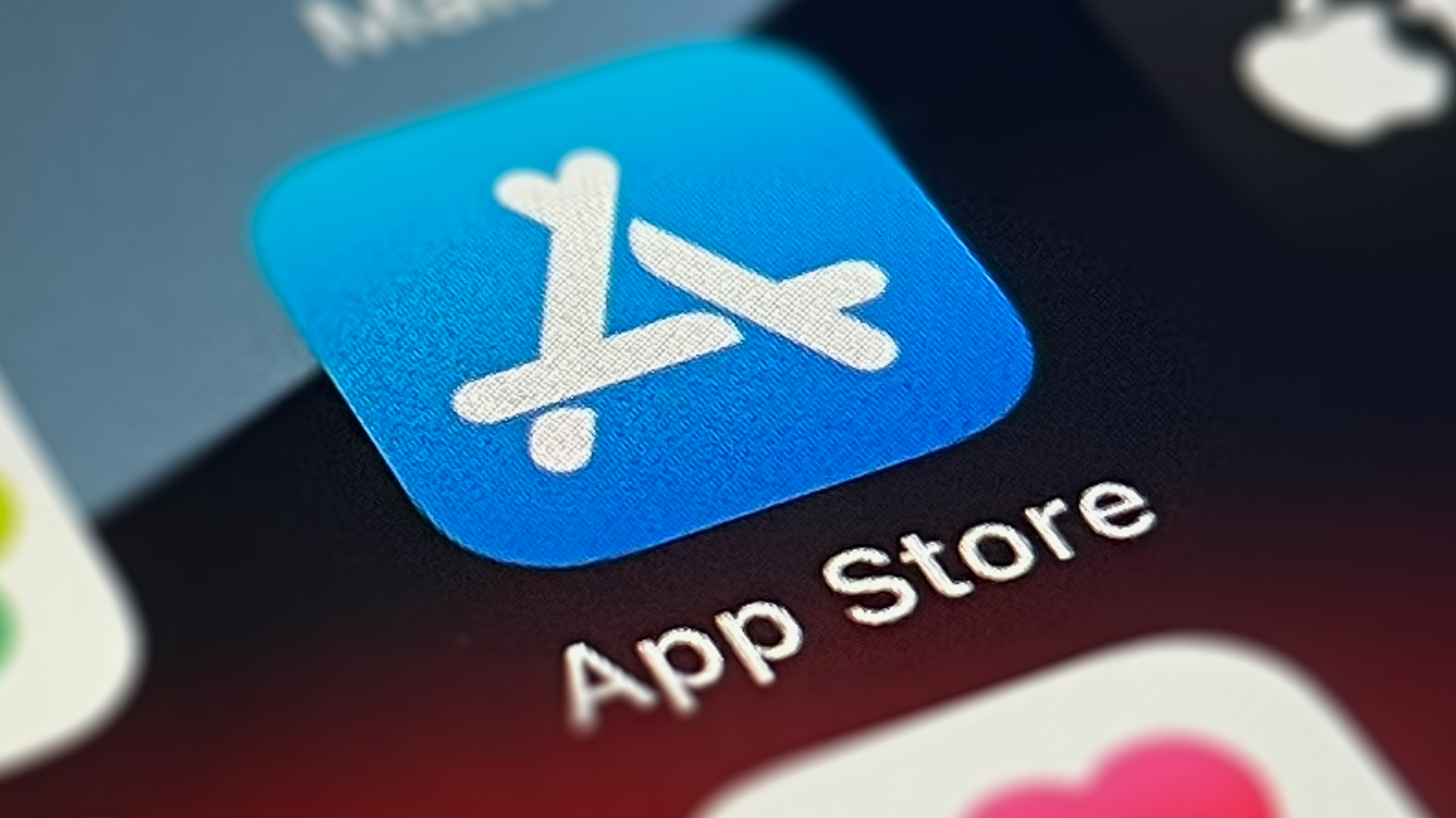

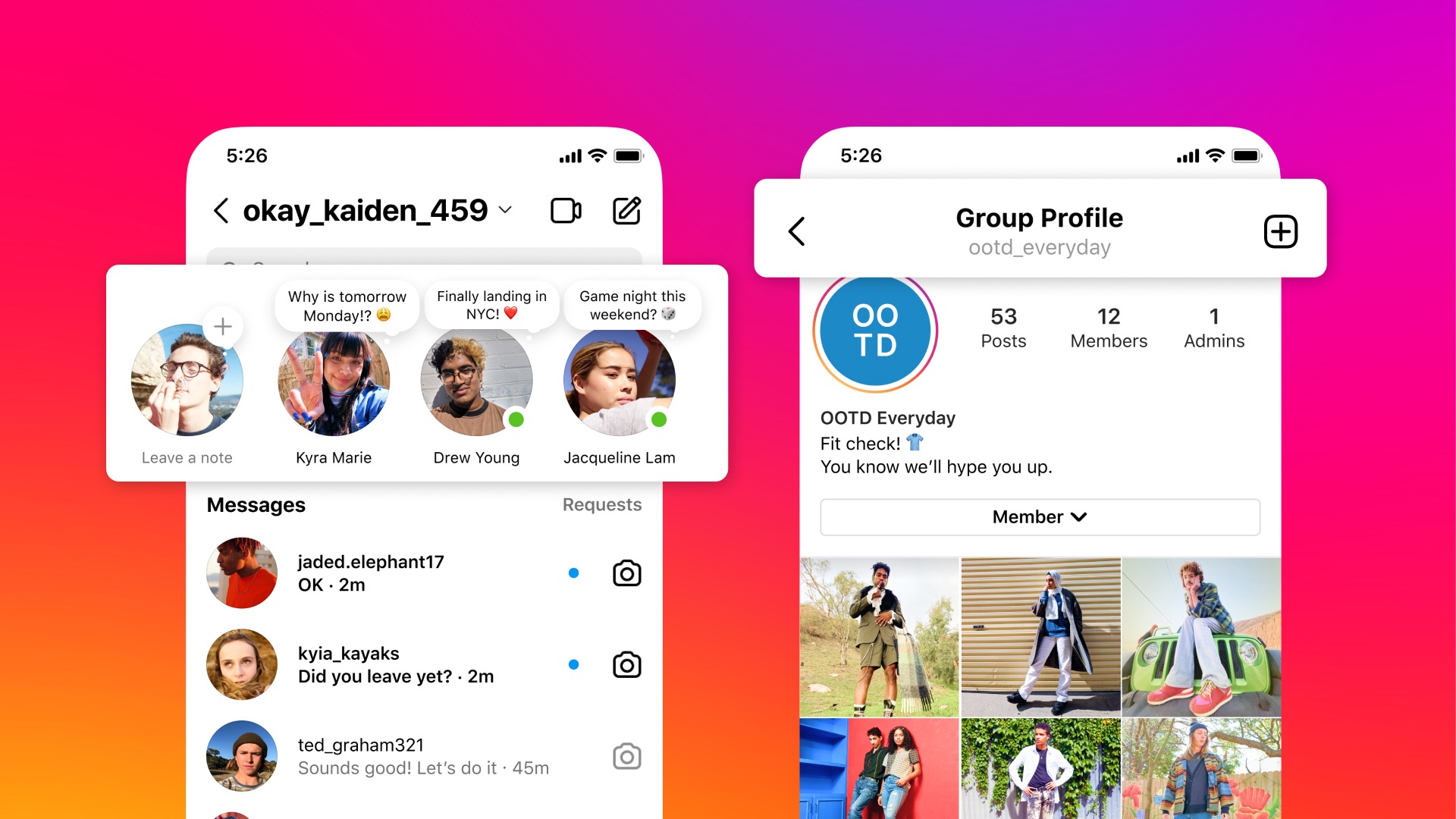
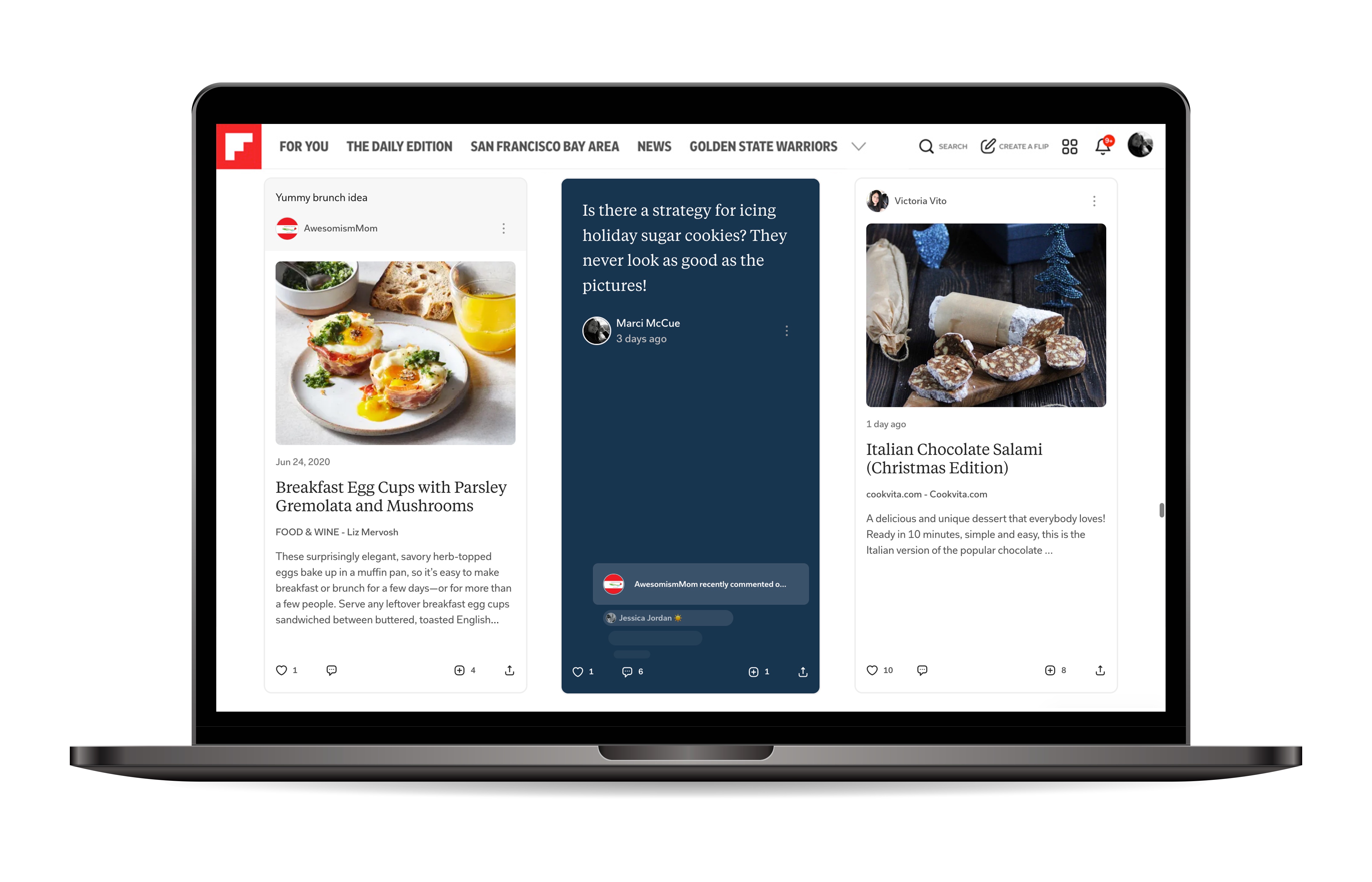
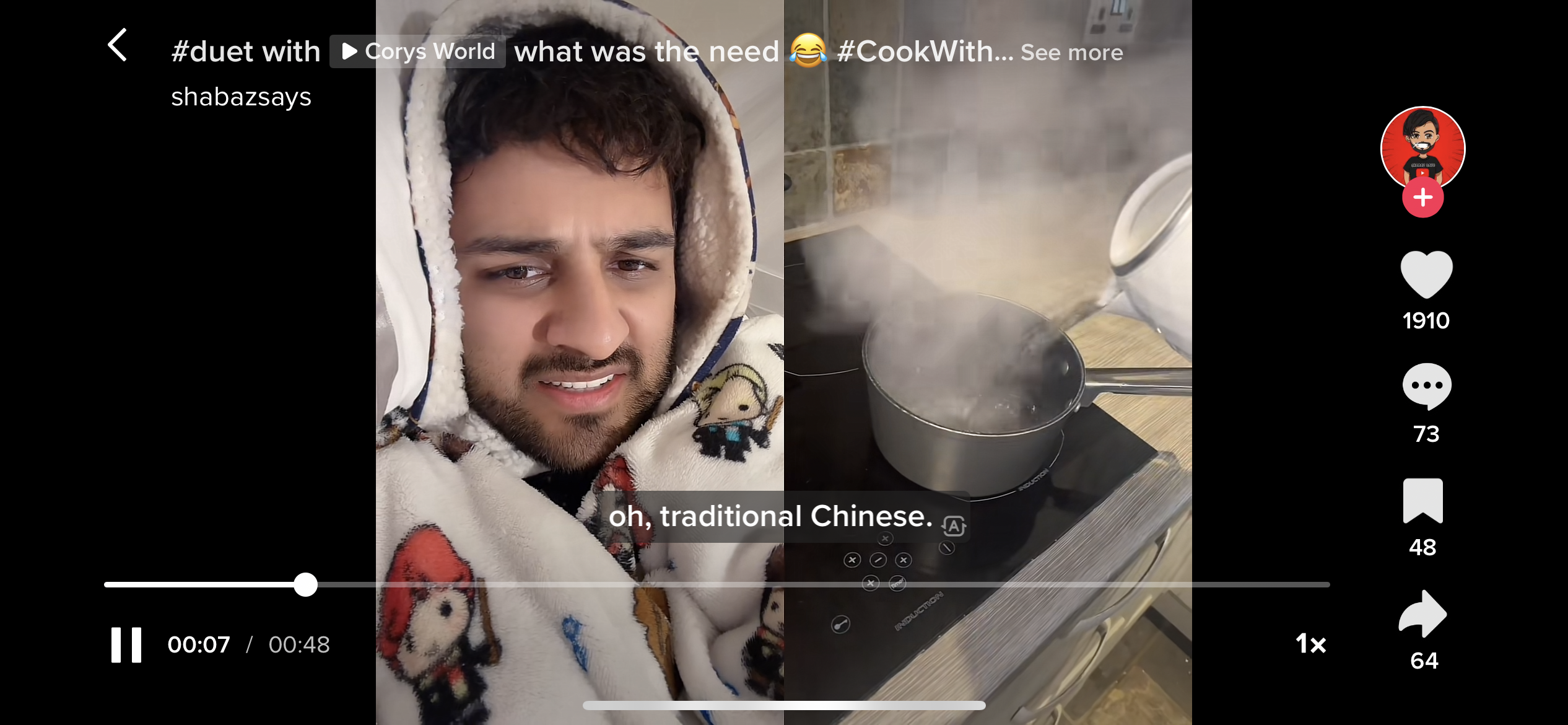
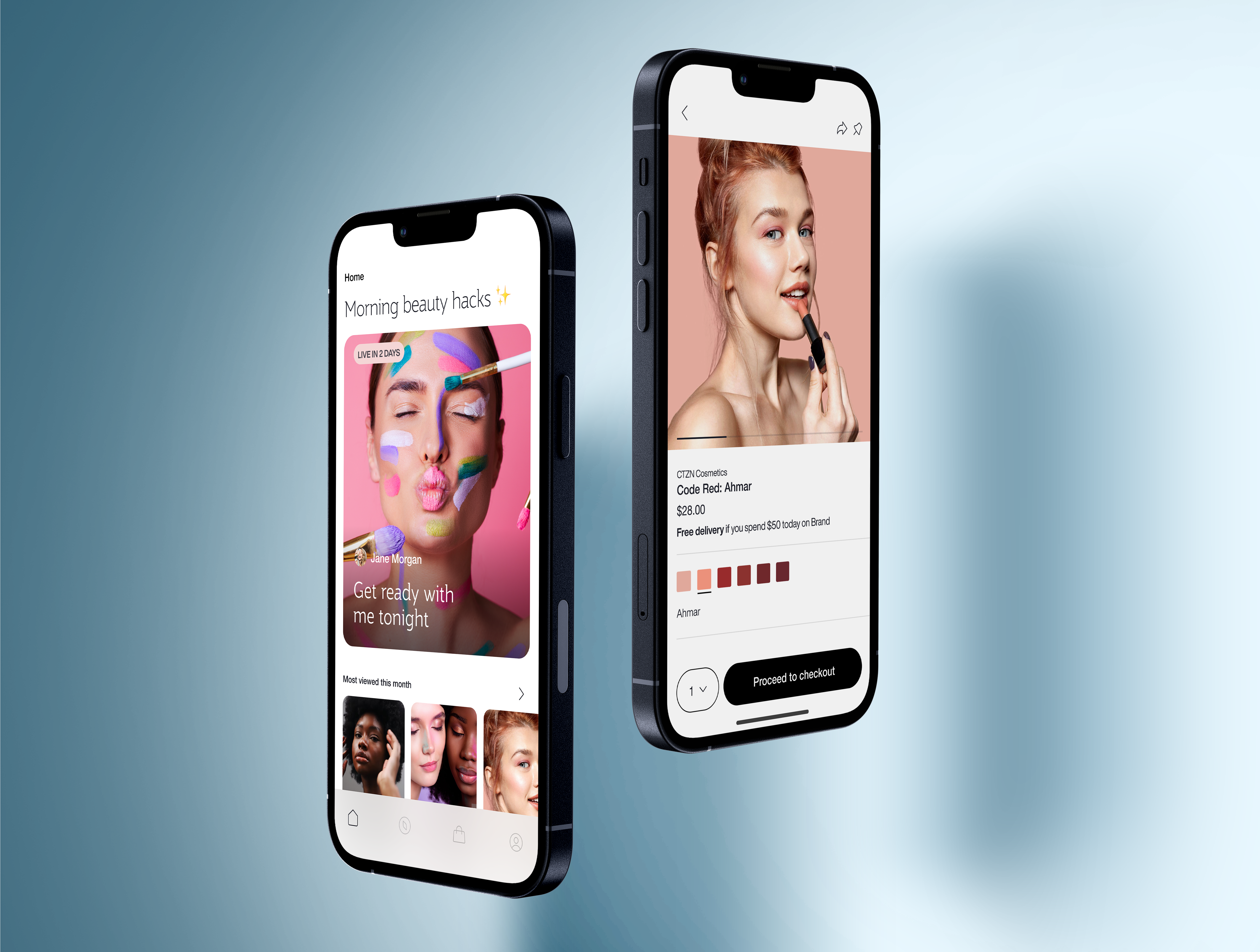


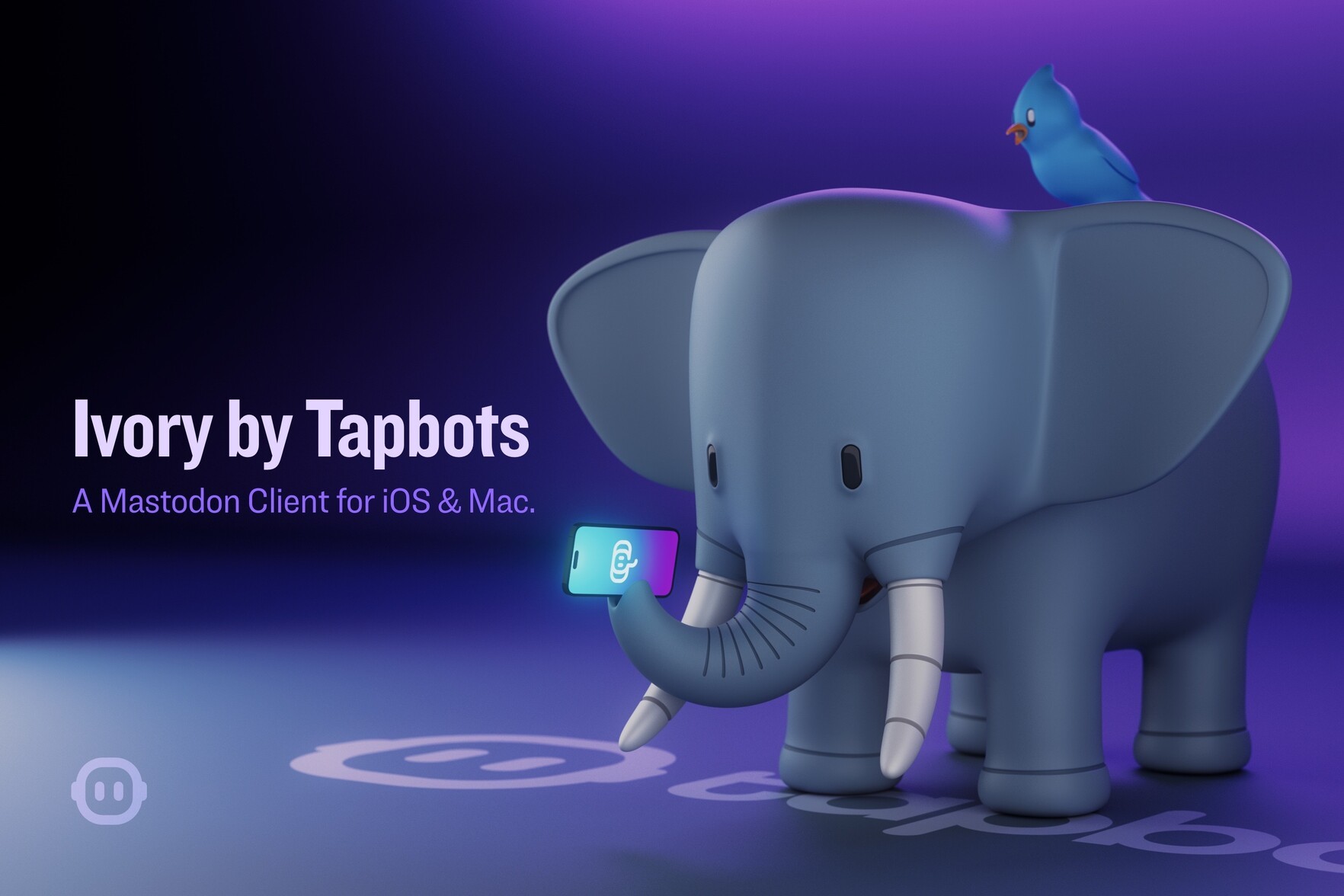

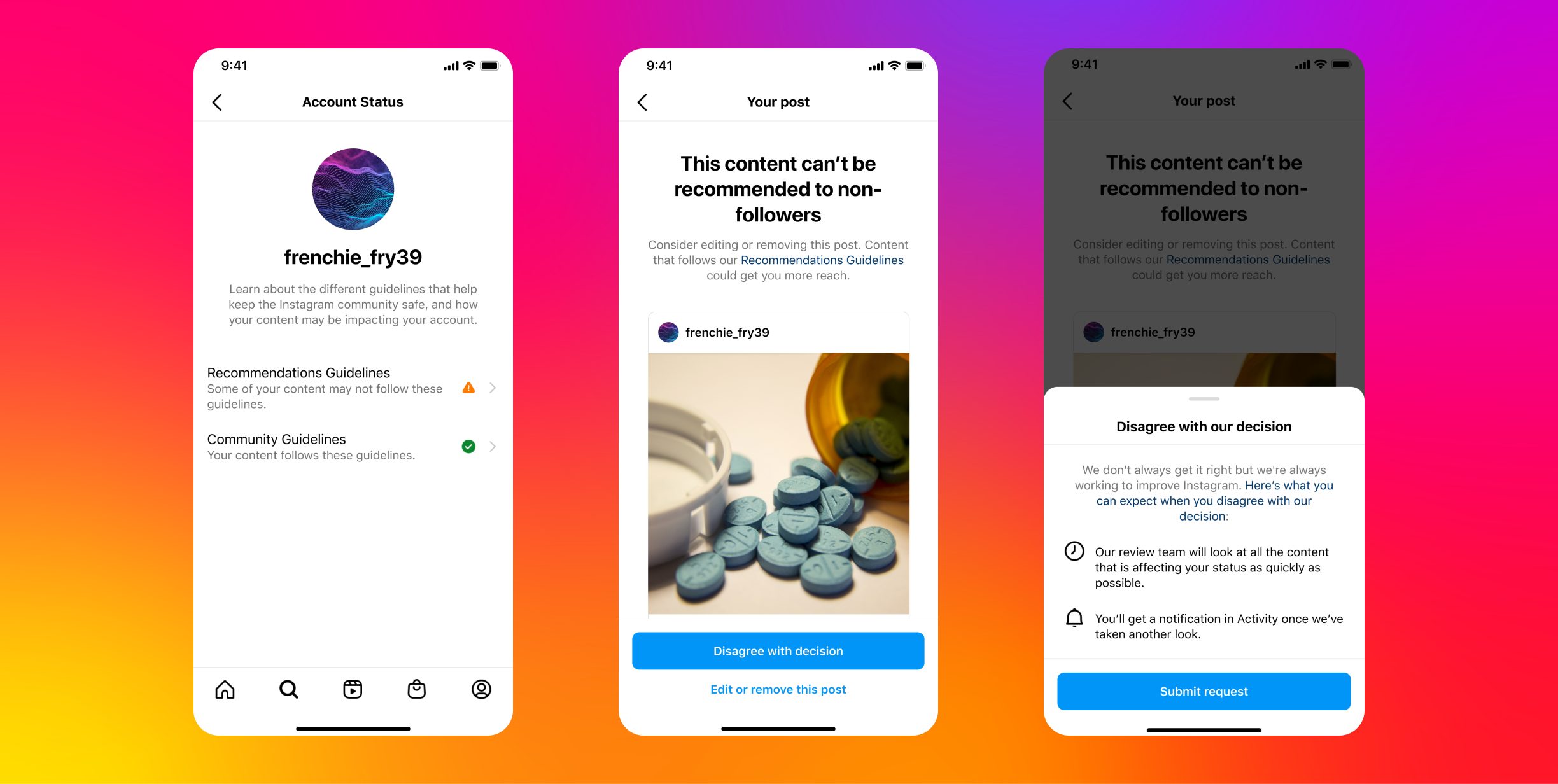
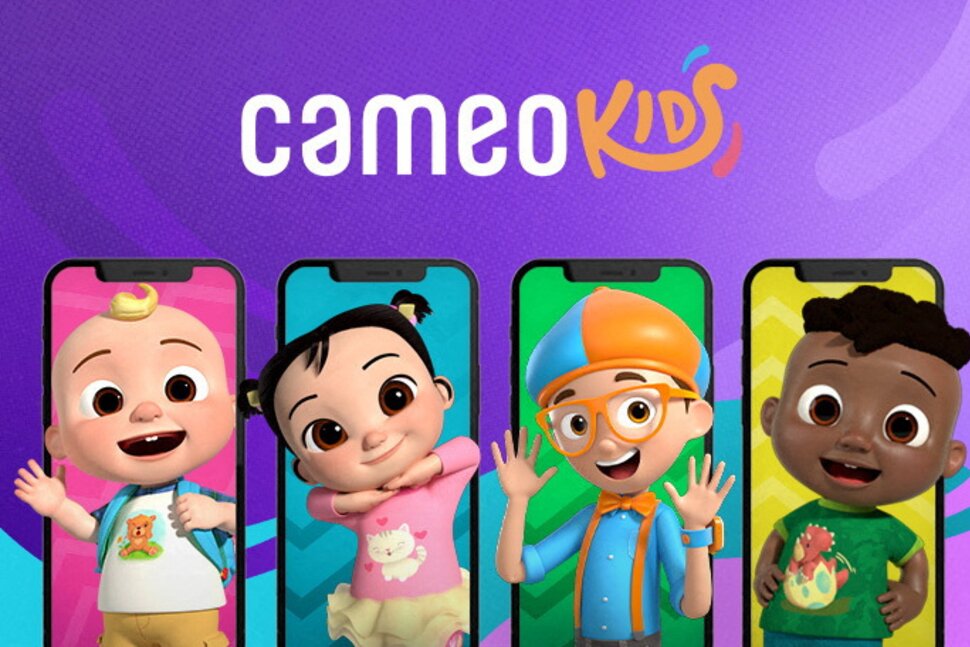

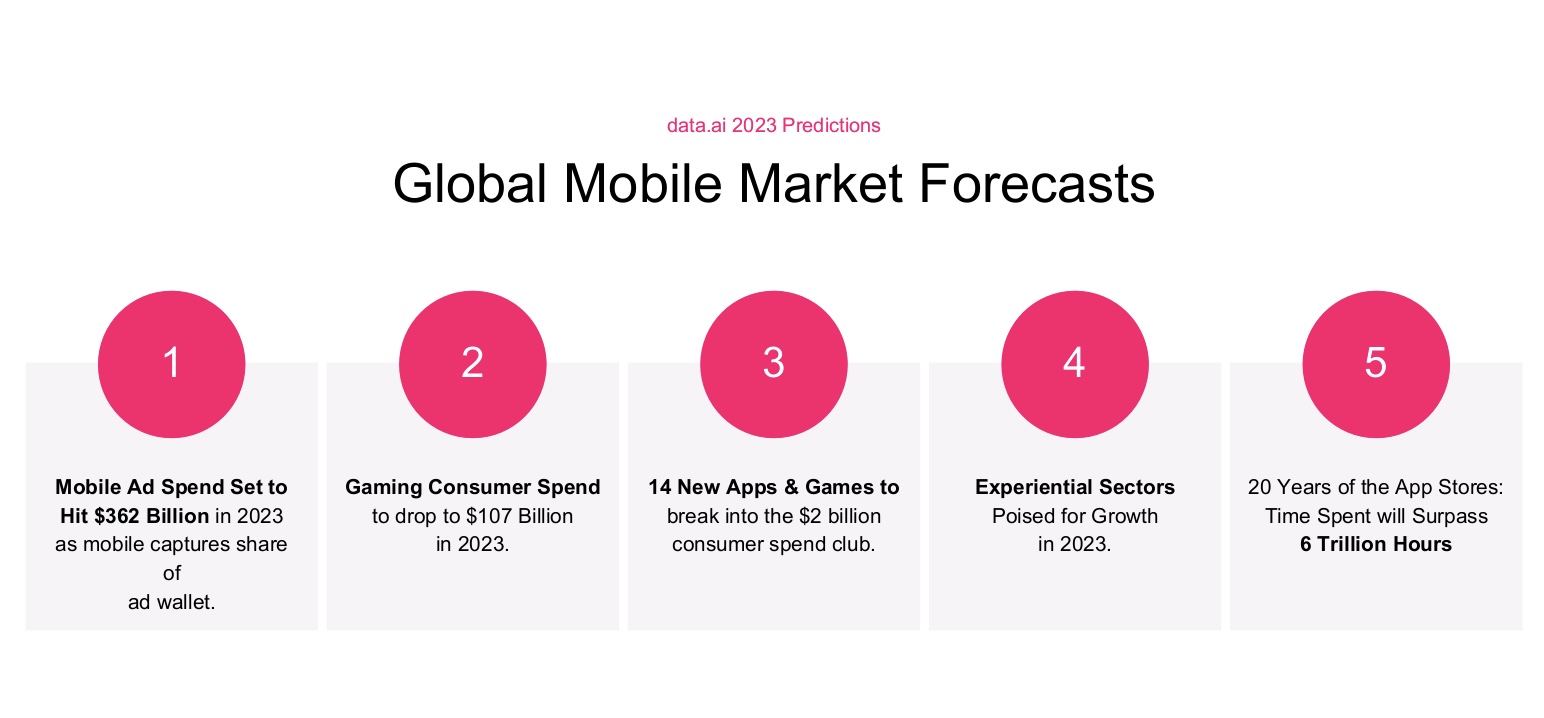
 Norwegian grocery delivery app Oda
Norwegian grocery delivery app Oda  Saudi Arabia-based food delivery service Jahez is acquiring The Chefz in a cash and stock deal for
Saudi Arabia-based food delivery service Jahez is acquiring The Chefz in a cash and stock deal for